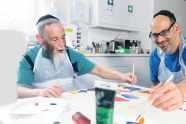





Hezbollah blames Israel for bizarre



















Hezbollah blames Israel for bizarre












Four in five British Jews hold an unfavourable opinion of Benjamin Netanyahu, according to a revealing new report by the Institute for Jewish Policy Research (JPR), writes Jenni Frazer.
Among the key findings in What do Jews in the UK think about Israel and its leaders, and how has this changed since October 7? are that 74 percent of Jews in the UK describe Israel’s situation as “bad” (37 percent) or “very bad” (also 37 percent), increasing from 57 percent measured in April/May 2023. Additionally, the report finds, British Jews think things are worse in Israel than do Israelis themselves.
The survey, written by JPR’s senior research fellow Dr Carli Lessof, with JPR
intern Roy Shinar Cohen, was conducted among 4,500 adult British Jews. Those surveyed were members of the JPR Research Panel and those who responded to the June and July 2024 JPR Current A airs Survey.
Overall, the report reveals levels of pessimism about Israel’s current situation have increased significantly among British Jews when compared to data gathered before the 7 October attacks on Israel and the war in Gaza.
The report provides an early look at one survey area – full results are scheduled for release at the beginning of October to mark the first anniversary of the 7 October attacks.
Ninety-five per cent of adult British Jews have an opinion on Netanyahu, the most widely-known leader among those examined. Four in five Jews – (80 percent) – hold
an unfavourable opinion of him, with 65 percent saying they “strongly disapprove” and 15 percent saying they “somewhat” disapprove of him.
Respondents were asked their opinion of six Israeli politicians: Netanyahu, Finance Minister Bezalel Smotrich, Minister of Security Itamar Ben-Gvir, former Prime Minister Yair Lapid, Defence Minister Yoav Gallant and former Minister of Defence and Deputy Prime Minister Benny Gantz. The report notes a lack of familiarity among British Jews with both Gallant and Gantz, despite their key positions in Israeli politics.
But it indicates a high disapproval rating for Smotrich at minus 78 percent, followed by minus 77 percent for Ben-Gvir and minus 68 percent for Netanyahu.

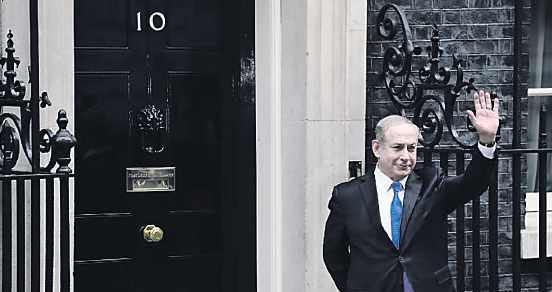
Continued from page 1
Unsurprisingly, politically right-leaning Jews were much more likely to approve of Netanyahu than those who are left-leaning.
The report says: “Jews who lean to the political right (based on voting intentions and voting in the recent UK election) are more than six times as likely than those who lean to the political left to have a favourable view of the situation in Israel, and men are three times as likely as women to have a positive view. People who identify as Zionist and strictly-Orthodox people are
also more likely than other groups to do so.
“Conversely, certain groups are more likely to identify Israel’s situation as bad than others, including those who have a political leaning to the left, women, those belonging to Progressive synagogues and older people”.
Additionally, “Jews in the UK who intended to vote in the 2024 election for either the Conservative Party or Reform UK, were over 22 times more likely to approve of Netanyahu than those who voted for all other political parties”.
JPR’s executive director, Dr Jonathan Boyd,
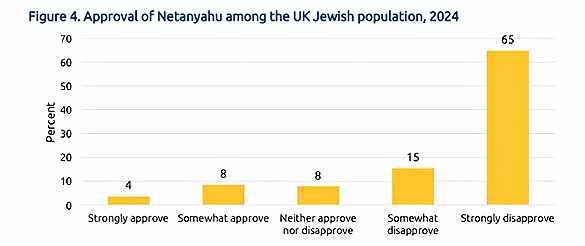
said: “The Jewish community in the UK holds strong ties and attachments to Israel, and the events of the past year have affected British Jews very deeply. In many respects, we can see they feel closer to Israel now than they did before 7 October.
“Still, as this report demonstrates, we are also seeing high levels of disapproval for Prime Minister Netanyahu and even higher levels for the hard-right members of his coalition, Bezalel Smotrich and Itamar Ben-Gvir. As much as Israel matters to British Jews, many are expressing clear concern about its current political leadership. This dissonance is fundamental to understand from a policy perspective – it hints at the evolving nature of British
Diane Abbott has admitted writing a “very ill-advised letter” that led to her suspension from Labour last year, writes Lee Harpin.
Speaking to BBC’s Newsnight, the veteran Labour MP said the letter published in The Observer that suggested Jewish people cannot suffer racism but “experience prejudice” instead gave leader Keir Starmer the opportunity to “move against me”.
“I think Keir Starmer wanted to finish his clear-out of the left in the parliamentary Labour Party and, by writing a very ill-advised letter, I gave him the opportunity to move against me,” said told the programme.
Abbott also accused the prime minister of treating her as a “non-person” during a controversy over racist comments allegedly made by the Conservative Party’s largest donor.
She said Starmer “never reached out to me personally” after reports of the remarks by Frank Hester, the tech businessman who has given £10m to the Tories.
Hester was alleged to have said in 2019 that Abbott, Britain’s longestserving black MP, made him “want to hate all black women” and that

she “should be shot”. He later apologised for the remarks, but denied his criticism had anything to do with her gender or skin colour.
Abbott told Newsnight: “I think initially I was treated as a nonperson … you would have felt that the party would have offered you support, advice on safety and security, even commiserated with you. And none of that happened.”
The row occurred while Abbott was suspended by Labour over comments she made about Jewish people and discrimination.
She was given a formal warning after an investigation into her Observer letter, which claimed that
Jewish and Irish people as well as Travellers instead “experience prejudice” and compared it to discrimination against people with red hair.
She was given back the Labour whip at the end of May, but another row erupted over claims she had been told not to stand for election again in July.
But with the row threatening to disrupt Labour’s election campaign, Abbott was allowed to stand and was re-elected as MP for Hackney North and Stoke Newington with a 15,000 majority.
A Labour spokesman said Starmer had “great respect” for Abbott. Other sources pointed out that Starmer had been seen going over to Abbott in the Commons and offering her his support over the insults made towards her by Hester.
The spokesman added: “There is no doubt that she has received the most abuse of any MP just because of her gender and the colour of her skin, and that is completely reprehensible and wrong.
“The party, including Keir Starmer, vocally condemned Frank Hester’s vile comments and reached out to Diane at the time to offer support.”
Jewry’s relationship with Israel, which we will be reporting on and discussing in considerably greater detail over the coming weeks.”
More findings from the JPR Jewish Current Affairs Survey will be published in early October. The report will look at the changing nature of British Jews’ political views about Israel, how secure British Jews feel living in post-October 7 Britain, and how the current war is affecting British Jews’ feelings of attachment to Israel and Jewish life in the UK.
The findings will also form the basis of a new series of the JPR/JW3 Jews Do Count podcast, which will be available on all leading podcast platforms in early October. • Editorial comment, page 24
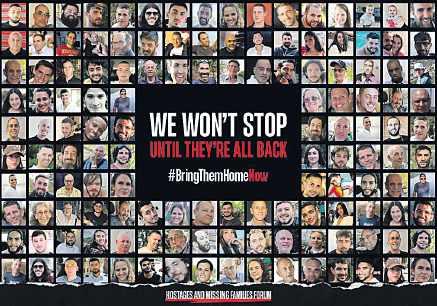
The Hostages and Missing Families Forum UK has launched a Rosh Hashanah project to support the families of 101 hostages still held captive in Gaza .
This will be the first Jewish yew year hostage families will spend without their loved ones and the group is calling on communities to show solidarity.
The forum is suggesting a range of activities, from sending Shana Tova cards to the hostages’ families, leaving a seat at your holiday table in honour of a hostage, wearing a yellow
ribbon and tying yellow ribbons on your doors, trees or railings.
A forum spokesperson said: “While we cannot replace the longing for the loved ones, join us in showing them some love: 1 – WhatsApp +44 74434 73688 ‘Hostage name for a card, please’ to receive the name of a hostage; 2 – Write a Shana Tova card to them and their family; 3 – Send the message to the address above.” Organiser Nivi Feldman said: “People are welcome to send in poems, drawings and cards and we will get them distributed to families.”
Home Secretary Yvette Cooper has told a communal business gathering she will use the “full force of the law” against those “who use conflict in the Middle East as a pretext to attack communities here in Britain”, writes Lee Harpin.
In a well-received speech to 400 guests at the Community Security Trust (CST) annual business lunch, Cooper stressed “there is no place for the glorification of terrorism or support for proscribed terrorist groups like Hamas, Hezbollah or Hizb ut-Tahrir”.
She added: “No ifs and no buts – those who proliferate that poison, on the streets or online, must always face the full force of the law.”
Cooper praised the long-standing work of the communal charity, saying: it was “no exaggeration to say that CST is integral to our collective e ort to counter threats and keep people safe”.
In a clear recognition also of Cooper’s own long-standing close relationship with CST, even before Labour formed the new government, deputy chairman Sir Lloyd Dorfman introduced her speech to the audience with added recognition of her commitment and engagement with the organisation.
Cooper was applauded as she said: “We know from experience that events in the Middle East can and do play out in increased tension and hatred here on our streets.
“And while there will always be room for fierce debate and disagreement on foreign policy issues… what is not acceptable, and will never be acceptable, is using conflict in the Middle East as a pretext to attack communities here in Britain.
“So let me be very clear – the horrific and soaring levels of antisemitism we have seen over the last year cannot and will not be tolerated. Not now and not ever. Because there is no place for antisemitism in this country.”
The home secretary noted how CST had recorded “with great professionalism and in
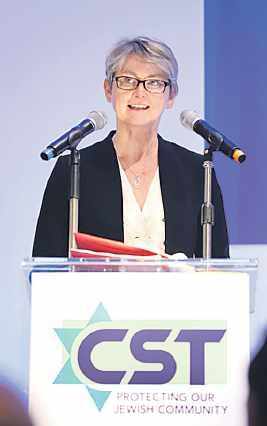
detail” the recent “alarming” rise in antisemitism, be it attacks on synagogues, schools or universities.
She added: “At last night’s (Monday’s) Holocaust Educational Trust event, I spoke with two survivors, Manfred Goldberg and Eve Kugler. Those short conversations were the most powerful and poignant reminder of where hatred can lead. So let me be very clear, we will not stand for it. And we will be unrelenting in our work to root it out.”
CST chief executive Mark Gardner said of the period following the 7 October terror attack and the rise in anti-Jewish hatred in the UK: “We literally gave our community the con-
Newly-elected MP for High Peak, Derbyshire, Jon Pearce, has been named the new parliamentary chair of Labour Friends of Israel.

He succeeds Steve McCabe, who stood down from parliament at the election.
In his first o cial event as LFI chair, Pearce has met the leadership of the Union of Jewish Students (UJS) to discuss antisemitism and the safety of Jewish students on UK campuses.
Pearce said: “After 14 long years in opposition, this is a moment of great hope for LFI. It is a chance to work with a Labour government to help make Britain and the world safer, less divided, more prosperous.
“But it’s also a moment of great challenge. As we approach the anniversary of the 7 October pogrom, the hostages remain in Hamas’ hands, the torment of their families is ongoing and the terrible su ering continues.”
He added: “I believe there’s rarely been a more important time for the shared ambitions of LFI and our new Labour government: to work towards two states for two peoples, promote peace-building between Israelis and Palestinians, strengthen regional security and prosperity, enhance the relationship between Britain and Israel, and fight anti-Zionist antisemitism.”
• Michael Rubin, p30
fidence and strength to continue its way of life. New sta were employed and guarding had to be increased, everywhere. We did it immediately and we continue to do so. It is our mission and our privilege.
“I see more people wanting to be more Jewish, and that makes me even more proud of CST, enabling Jewish life and empowering this community in the fight for its future and that of our children.”
CST’s Dorfman also commented: “We have built a state of the art, 24/7 web of protection across the Jewish community, working in close partnership with o cials at the Home O ce.
“Our partnership managing the government grant that pays for security guards at Jewish schools, synagogues and other premises is the most obvious manifestation of that joint e ort. But it goes much deeper, with regular exchanges of information and insights about the latest developments in anti-Jewish extremism, whether from Islamists, far right, far left, or those anti-Israel extremists who cross the line from legitimate political protest into incitement, intimidation and support for terrorism.”
Fellow speaker Sir Gerald Ronson concluded the lunch with his own tribute, saying: “A lot of people seem surprised by all the antisemitism that’s out there. I’m not surprised.
“My war did not start on 7 October. My war started 62 years ago on the streets of the East End. As a young man, I joined with others who protected our community.
“Things have come a very long way since then. Thirty years ago, CST became a registered charity and now it is widely recognised as the best community security organisation anywhere in the world.
“Everything we have built at CST is there for a time like this. That investment is what enabled us to respond immediately, so that our community kept leading its Jewish life.”
Former government minister Sir Sajid Javid has been appointed the new chair of the Holocaust Memorial Day Trust (HMDT).
He will take on the leadership of the charity’s Board of Trustees at the annual general meeting next July. Until then he will join the board as chair elect.
The Trust said Sir Sajid was bringing “significant national leadership, knowledge of the work of HMDT and a passion for challenging hatred and persecution based on faith, ethnicity and other forms of identity.”
It added Sir Sajid, as a former secretary of state for housing, communities and local government, played “a leading role in the development of plans for the new Holocaust memorial and learning centre”.
He had also worked closely with

BY DAN JARVIS MP SECURITY MINISTER
Up and down the UK, communities are immeasurably stronger for having a proud Jewish contingent.
From politics to sport, from the arts to business, from media to medicine, British Jews have made – and continue to make – a phenomenal contribution in these and so many other fields.
There is widespread a ection for Jewish culture and comedy and food.
Put simply, Britain would not be Britain without its Jewish community.
Yet despite all of that, despite all the heritage and history spanning generation after generation, being Jewish in this country today is still too often di cult. For some, it can even feel dangerous.
Elie Wiesel said that “as we reflect upon the past, we must address ourselves to the present, and the future”.
Those words have felt especially relevant over the last year – a year in which Jews suffered their deadliest day since the Holocaust. And a year in which the evil of antisemitism has burst out into the open once more.
In opposition, I watched in horror as a torrent of anti-Jewish hatred swept across Britain after the 7 October attacks.
And only weeks after I was appointed security minister, the Community Security Trust’s latest report showed nearly 2,000 incidents in the first half of this year – a record number for a January to June period.
Assaults, abusive behaviour and online cases all jumped year-on-year, with victims threatened, spat at, punched and kicked; stones, bricks and bottles hurled at people; Jewish property damaged and desecrated. And there will be many more instances that were not reported to CST or the police.
HMDT and many others in the fields of Holocaust commemoration, and had visited Auschwitz and Yad Vashem.
Sir Sajid said: “This is a profound responsibility, and I am committed to ensuring that we continue to honour the memory of those who were murdered and educate future generations about the lessons of the Holocaust and other genocides.”
He succeeds Laura Marks, who will retire next July after the maximum nine years in the role.
HMDT chief executive Olivia Marks-Woldman said: “We are thrilled to welcome Sir Sajid. His expertise, connections and determination will drive us forward in realising our vision of building a better future, one in which the dignity of every human being is respected.”
It is not as if we were under any illusions that antisemitism had disappeared. But the scale and viciousness of the latest surge has been utterly shocking. And the appalling truth is that many Jews have been left feeling isolated and unsafe in their own country.
In opposition, I watched in horror as a torrent of anti-Jewish hatred swept across Britain after the 7 October attacks. As security minister, it fuels my fierce determination to give British Jews the protection and reassurance they want and deserve.
The Home O ce will continue funding the crucial Jewish Community Protective Security Grant, and I will ensure police and security services have the tools and measures they need to keep our country and its citizens safe.
Public order policing has come under the spotlight and, while it is right to acknowledge this is a complex area, I am clear anyone who breaks our laws will be caught and punished. This fight has gone on for too long and caused too much pain. But we will never give up. This government will never give up. My message to Jewish News readers and Jewish families is: you are not alone. We hear your concerns. And we will do what it takes to protect you and your loved ones. Now and always.
A London-based Israeli teacher whose parents were killed in the 7 October attacks has said it is “insanity” to believe conflict with the Palestinians can still be resolved militarily, writes Lee Harpin.
Magen Inon, whose parents Bilha and Yakov were murdered in Moshav Netiv Ha’asara during the massacre, was addressing the Lib Dem conference in Brighton.
He told the audience: “We who advocate for peace are also called naive, but thinking that if you just hit someone harder they will finally get it, they will finally give up, is pure insanity.
“It is time we face reality. There are roughly seven million Jewish Israelis and roughly seven million Palestinians between the river and the sea and no one is going away.”
Inon continued: “Menachem Begin, who was both
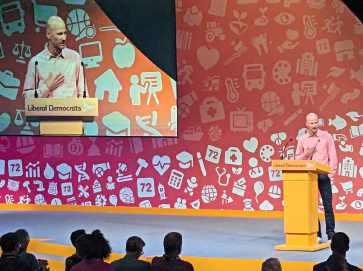
the first right-wing prime minister of Israel and the first to sign a peace treaty, said: ‘War is avoidable, but peace is inevitable’ at some point in the future.”
Introduced to the conference stage by foreign affairs spokesperson Layla Moran, Inon added: “There
will be an end to the violence between Israelis and Palestinians. The question is, how long will it take us to get there?”
Recalling his parents’ deaths, the teacher said: “We pray that they did not suffer in the last moments. And the only consolation I have
is that they died together, inseparable in life and death. We miss them so much.”
Inon also used his speech to urge the Lib Dems to pressure the government to step up efforts to support pro-peace civil society organisations in Israel and Palestine.
“Yesterday, hundreds of thousands of Israelis were marching the streets calling for a deal, calling for an end to the war and for the hostages to be brought back home,” he said.
“We need to support those Israelis who are marching in the streets.
“Similarly, there are Palestinians who are advocating for peace while advocating for a non-violent diplomatic process between Israel and Palestine.
“We need to support those forces in the Palestinian community.”
The Liberal Democrats this week voted in favour of “immediately suspending arms exports to Israel” and recognition of a Palestinian state, following an emergency Gaza debate at their party conference, writes Lee Harpin.
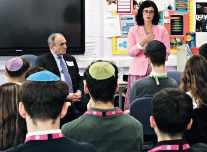
Delegates “overwhelmingly” voted in favour of a motion tabled by Layla Moran, spokesperson for foreign affairs, which also called for the ousting of Hamas from Gaza, and the proscription of Iran’s Revolutionary Guard Corps (IRGC).
Monday’s debate, ‘The Israel-Gaza Conflict an immediate bilateral ceasefire and securing two states’, was conducted in respectful fashion, and included several speeches which addressed Israel’s current fragile predicament in forthright fashion.
Gavin Stollar, honorary chair of Lib Dem Friends of Israel, told delegates that calls for a ceasefire would be premature if it “leaves any
hostages remaining”. He added: “Anyone who shares our belief in a two-state solution is a Zionist, for Zionism is the belief in a sovereign state of Israel, a homeland for the Jewish people, a state like any other in the world.”
Moving the motion, Moran said she had been proud to work with pro-Israel and proPalestine groups in the party to create wording that recognised “only a two-state solution will deliver security and dignity” for both peoples in the Middle East.
But Moran added: “We also want a stronger stance on the export of British arms when there are suspected human rights abuses.”
The Trades Union Congress (TUC) has passed a motion at its conference demanding all UK arms trading with Israel be ended immediately –but failed to mention Hamas or the 7 October massacre, writes Lee Harpin.
One Labour source who spoke to Jewish News later described the passing of such a one-sided, antiIsrael motion as “shameful” for the union movement.
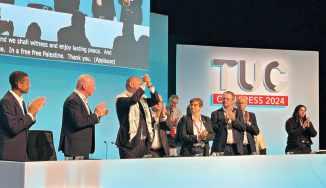
In the debate on Palestine, speakers from eight trade unions addressed delegates at the annual conference in Brighton, with none of them acknowledging the impact of Hamas terrorism or the 7 October atrocities that left 1,300 men, women and children dead.
Instead, the successful motion noted only that Israel’s “military assault on Gaza has killed over 35,000 Palestinians, injured more than 70,000 and displaced over 75 percent of Gaza’s population, destroying housing, hospitals, schools and universities”.
It called for renewed focus on “a strategy of boycotts, divestment and sanctions” and in a clear challenge to the Labour government called for the UK to “end all licences for arms traded with Israel, meeting international law”. It also demanded the government “revoke the 2030 Road Map for Israel bilateral relations”.
The one admission of any hurt caused to Israel was that in its call for a ceasefire, the motion called for the release of “all hostages” alongside “Palestinian political prisoners”.
Reacting to the passing of the motion,
Steve Scott of Britain Israel Trade Union Dialogue (BITUD) said: “Not only did the motion not refer to, let alone condemn, the 7 October atrocities and subsequent mass hostage taking but no speaker referred to this at all.
“Speaker after speaker laid into Israel, so you would have thought that 7 October didn’t happen. No one from BITUD wants war but there were no proposals for peace by the TUC. Instead, Israel is the problem and the Palestinians apparently have no agency.”
In a response to the debate, general secretary Paul Nowak said: “The TUC unequivocally condemned the attacks by Hamas on October 7 last year and we call for the release of all hostages unharmed. We call also for an immediate and permanent ceasefire and respect for international human law.”
Other attendees stressed it was the composite that was passed. The anti-Israel motion was submitted by the National Education Union and had the support of Unison and Unite.







This unique event provides doctors and medical students with the opportunity to meet with representatives from across the Israeli medical establishment.
We’re excited to welcome keynote speaker PROF. GIL FIRE, DEPUTY DIRECTOR OF TEL AVIV SOURASKY MEDICAL CENTER - ICHILOV Ichilov After October 7: Challenges, Impact & Growth

MedEx is the only place where you can:
• Have your documents certified in person








• Begin the process of transferring your medical license


• Interview with Israeli hospitals and medical clinics


*Children's activities will be held during the event






• Discuss your Aliyah plans even if they’re long term








by Jenni Frazer @Jennifrazer
The tormented faces of the young survivors of the Nova festival massacre last October stay with the viewer long after the conclusion of Yariv Mozer’s painful and powerful film Surviving October 7th: We Will Dance Again.
Scheduled to be screened in the prime time Storyville strand on BBC2 on 26 September, the film tracks the joy of the young, peaceloving party-goers as the music festival begins. And then the sun rises on the morning of 7 October, and the celebrants see what they think initially are fireworks on the horizon.
But of course, these are not fireworks but Hamas rockets, the harbinger of pure evil.
In this extraordinary 90-minute documentary, Yariv Mozer has assembled footage from a variety of sources – from CCTV, car dashcams, from Hamas’ own baleful and boastful livestream GoPro material. Above all is footage from the Tik-Tok and Insta generation, for whom no event was real unless they filmed it. It is a real minuteby-minute terrifying record of the fear and suffering that enveloped the party-goers.
We hear testimony in English and Hebrew from the clearly still traumatised survivors. And in Hebrew, you hear one word repeated over and over — “shechita”. Slaughter.
As the film opens, some of the survivors are frank about the drugs they were taking to enhance the experience of the music and dancing at Nova. It’s a partial explanation of why so many were unable to come to grips with what was happening, as the Hamas murderers swarmed into the festival site, many on motorbikes, shooting at random.
If we, the stunned viewers, can’t believe what we are seeing, how much more would that have been the case for the young Israelis and foreign nationals, part of a crowd of 3,500 gathered in the desert?
We also learn a good number of those attending Nova were from religiously observant families. Some had attended a Friday evening meal the night before and had carefully evaded awkward questions about how they planned to spend Simchat Torah on Shabbat. And later in the film, heartbreakingly, we hear people who are convinced they are about

to die, reciting the words of the Shema : “Hear O Israel…”
The young men and women are cheerful at the beginning of the film, talking about their friends, their travel down south to the Gaza Envelope, their love of music. One by one, they break down as they relive the torment of that awful day, talking about those who died around them, their losses and injuries and the terror of how they ran and hid and survived.
One of the stories highlighted is that of Hersh Goldberg-Polin, the 23-year-old whose arm was blown off in a grenade onslaught against him and his friends as they tried to hide in a shelter.
He was kidnapped and later, sadly, was one of six Israelis summarily executed by Hamas as IDF forces drew close to rescuing them.

The testimony comes from Eitan Halley, 28, who recalls taking refuge with Hersh and Aner Shapira, a British-Israeli musician, in a 5ft x 8ft roadside bomb shelter, together with 27 other people.
Hamas terrorists began throwing grenades through the doorway — and just as fast, Aner picked up the grenades and threw them back.
Eitan realised that eventually, he, too, would have to emulate Aner. He was painfully correct. Aner threw out eight grenades. The ninth killed him and blew o Hersh’s arm. Eitan took over throwing out the grenades. He barely remembers doing so.
He tells Yariv Mozer: “I remember seeing a terrorist walk in. He was wearing all black. He had a black mask on, an AK-47, and a green bandana on his head with the Hamas symbol. I remember you could see his mouth through the mask, like, he had a little opening, and he was smiling. Like it was a game that they won. They came back in… and then they started shooting everyone inside”.
We see Elinor Gambarian, a single mother of an eight-yearold boy, who she says is her entire reason for living. And she spends hour after terrified hour hiding in a fridge, but determined to live and survive for her son’s sake.
We see another woman whose smiling face at the start of the film
belies the tragic loss of her partner, David. Noam and David hid in a waste container with about a dozen other people, as the shooting went on all around them.
Noam recalls having to stay silent to survive; not being able to scream or cry as she realised she had been injured and her boyfriend David shot dead: “One of the girls in the container raised her head and she shouted: ‘They spotted me!’
“And some terrorist approached, and shouted: ‘Allah akbar!’ And there was a burst of gunfire.”
And then Mozer pulls his camera back and we see that Noam survived the attack — but is in a wheelchair, due to her injuries.
Each story and testimony is almost worse than the next, but compelling and necessary to understand what Israel went through on that terrible day — rapes, murders, kidnappings, the satanic glee of the Hamas killers.
We hear the desperate calls to the army, police and ambulances, where the operators have no real idea of the scale of the emergency, and we relive the anguished attempts by people to flee Nova, only to run into Hamas ambushes. And the soundtrack is gunfire, and screaming. And there are bodies everywhere.
Yariv Mozer said: “I see it as my duty as a documentary filmmaker
1 Mika Horowitz escaped by running away and hiding 2 Stav Deutch escaped by running away and hiding
3 Aner Shapira (killed in a shelter while throwing out a grenade) 4 Hersh Goldberg-Polin (kidnapped to Gaza, there he was murdered). 5 Matan Boltex – escaped in a car 6 Amit Levy – escaped in a car 7 Tal Noy – escaped in a car 8 Yuval Lanzkron – escaped in a car 9 Michael Levy – escaped in a car 10 Halely Ben Tzion – escaped by hiding in various places 11 Sarel Botavia – escaped by hiding in various places
to bring to the world the testimonies and horrific stories of the survivors of this slaughter, those who are no longer with us, and the countless who are still captured hostages in Gaza, with their fate remaining unknown.
“These are young women and men whose only sin was their desire for music and the passion to celebrate free love, spirit and freedom.
“It’s a story that needs to be told to honour the victims’ memory, challenge the darkness with light, and rea rm our unwavering belief in hope, unity and the enduring human spirit.”
Lucie Kon, Storyville’s commissioning editor, who is Jewish, said: “I am grateful to the young survivors of the Nova music festival who have trusted us to share their experiences of that terrible day, so that BBC viewers can get a sense of some of what they experienced. This is an important film. Director Yariv Mozer and the team have done an extraordinary job in telling this harrowing story.”
Surviving October 7th: We Will Dance Again, says the BBC, forms part of a group of programmes marking the 7 October anniversary.
Other programming includes the BBC Storyville documentary Life and Death in Gaza , produced by BBC Eye, which will be shown on 15 October on BBC2, a Panorama special on 7 October on BBC1 and news coverage across TV and radio as well as a collection of curated content on iPlayer.
• Surviving October 7th: We Will Dance Again is showing on BBC2 at 9pm in the Storyville slot on 26 September
Wednesday 25th S eptember 2024
3-5pm
Venue: North-West London
Price: £15 per person
RSVP: 020 8732 6101 or email kklevents@kkl.org.uk

Israel

Please donate now to help







































A gay nightclub in London which publicly announced “no f*****g Zionists” on its Instagram account has apologised, writes Michelle Rosenberg.
As reported by Jewish News, Adonis, based in a Docklands warehouse, faced accusations of antisemitism and “aggressive racism” for including in its social bio the words “Zionism has no place in queer spaces”.
In an Instagram post uploaded on Saturday, Adonis founder and promoter Shay Malt said the club “would like to apologise for some instances of offensive language used on social media in recent months”.

and that “our Jewish attendees, friends and DJs continue to be valued and welcome at all events.”
He added that “this may have been insulting to some members of the Jewish community” and the club “formally retract a ‘No Zionists’ post that was briefly online”.
The statement goes on to claim the post was a “flippant, ill-considered retort to the ongoing abuse, attacks and death threats we continue to experience on social media”
Jewish News also reported that following the claim that “Zionism has no place in queer spaces”, the licence holders of the premises that host Adonis were threatened with legal action by Campaign Against Antisemitism if they refused to disassociate from the club promoters.
A spokesperson for Campaign Against Antisemitism said: “At long
last Adonis has climbed down and apologised. The apology, however, only comes after we contacted a number of venues. Only six percent of British Jews do not consider themselves to be Zionists. Businesses are under a legal obligation to abide by equality legislation.”
The spokesperson added: “Failure to do so in the case of venues and events will result in us challenging their licence with the relevant local authorities.”
A woman has been given a community order after she wore a T-shirt at a proPalestine protest which gave rise to reasonable suspicion that she supported the terrorist organisation Hamas.
Shenissa Govanni wore a black and white T-shirt at the central London march on 17 February displaying an image of one of the proscribed organisation’s spokespeople, Abu Obaida.
The 29-year-old, from Bristol, pleaded guilty last month to wearing the item “in such a way or in such circumstances as to arouse reasonable suspicion” she was supporting Hamas.
At Westminster Magistrates’ Court last Friday, she was sentenced to an 18-month community order requiring
her to undertake 30 days of rehabilitation activity requirement and 100 hours of unpaid work.
Sentencing, district judge Daniel Sternberg told Govanni: “It is clear you knew well what image was being displayed on your T-shirt and you chose to wear it that day.”
He said messages she sent days before the protest “make clear that you knew the T-shirt was or could be interpreted as a pro-Hamas garment”.
Govanni was arrested originally in connection with a cardboard sign she carried at the February rally which read “Long live the intifada” on one side and “85% of Hamas soldiers are orphans” on the other, the court heard.
Members of the Lincolnshire Progressive Jewish Communities took part in a heartfelt dedication service of the Lincoln Jewish Memorial Stone (LJMS) at the International Bomber Command Centre (IBCC) just outside the city.
This significant memorial commemorates the Jews who served and died in the RAF during the Second World War and pays homage to the medieval Jewish history of Lincoln.
The stone, hand-carved and mod-
elled on the 2,000-year-old Magdala Stone discovered near the Sea of Galilee in Israel in 2009, stands as testament to the enduring legacy of Jewish history and sacrifice.
The RAF’s only Rabbi Samuel de Beck Spitzer led the dedication ceremony. Other dignitaries paying their respects included representatives from local Jewish communities, AJEX, the mayor of Lincoln and local MP Dr Caroline Johnson.
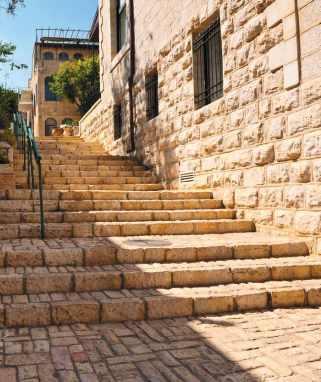






























Chief Rabbi Sir Ephraim Mirvis this week a xed the mezuzah to the United Synagogue’s new Chesed Hub, a purpose-built warehouse in Bushey to support members in need, writes Michelle Rosenberg.
The Chesed team, previously operating out of a temporary garage space, support 150 households a week.
They provide essential food parcels to the elderly, those struggling financially, people who have a spouse in hospital and unable to cook and those who have just come home from hospital, to help them until they are back on their feet.
Extra items are also provided around the major Jewish festivals, including honey cakes for Rosh Hashanah, Mishloach Manot for Purim and food parcels for Pesach.
Sir Ephraim was joined at the o cial opening by Hertsmere MP Oliver Dowden and Herts-
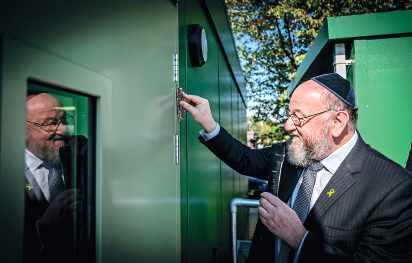
mayor Richard Butler.
He said: “The new Chesed Hub is not just the hub of the US Chesed, it’s the hub of our United Synagogue because performing acts of kindness is at the centre of who we are and what we do.
Chesed defines us: it’s what we want to do and our hope and aspiration to inspire others.”

Dowden welcomed the new development and added: “The wonderful shuls in my constituency regularly come together to work for the benefit of the wider community.”
Reflecting on recent events, he went on: “I want to wish everyone an early sweet new year –we certainly need it after one of

the most challenging years in the history of the Jewish people and the state of Israel.”
Mayor Butler said: “Coming here today reminds us politicians that we sometimes overlook the extraordinary work of our communities.”
Sharon Daniels, head of Chesed and Volunteering at the United Synagogue, said: “Previously we were based in the garage at the United Synagogue’s central o ce as a temporary set-up and we are delighted to now have a bespoke warehouse and a dedicated Hub Coordinator.
“This will allow us to provide a better service and a nicer environment for our volunteers. A very big thank you to the donors who made the building and the food purchasing possible. Chesed means ‘loving-kindness’ and is about helping our community and also the wider community, and we hope to expand what we are able to o er as a result of this hub.”
Eleven bar and batmitzvah-aged children from Israel’s Talpiot Youth Village in Hadera were hosted by Stanmore and Canons Park Synagogue for a special community Shabbaton.
The event was part of a new ‘Twinning in a Group’ programme, a pilot collaboration organised by Jewish Child’s Day and Stanmore and Canons Park Synagogue.
After months of online communication via email and Zoom, the children finally met in person, sharing a transformative weekend.
Talpiot Youth Village supports at-risk children, providing the education, care, and opportunities they need to overcome di cult circumstances and reach their full potential.
Jewish Child’s Day, a charity dedicated to supporting vulnerable Jewish children worldwide, brought the Shabbaton to life with Rabbi Eli Birnbaum, head of Community Development at Stanmore and Canons Park Synagogue. Together, they created an unforgettable experience as part of their mission to foster meaningful cultural connections.
In addition to building these relationships, Jewish Child’s Day is committed to inspiring the next generation to engage actively in charitable giving, helping children understand the power of making a lasting impact on their peers locally and globally.
The charity has transformed the lives of Jewish children in need for more than 77 years, including those at Talpiot Youth Village, which is one of its beneficiaries.
A World War Two hero who played a crucial role in the Dunkirk evacuation of 1940 has been honoured by AJEX, the Association of Jewish Ex-Servicemen and Women of the UK.
AJEX archivist Martin Sugarman unveiled a commemorative plaque to Lt Commander Martin Solomon at a ceremony at the Leigh Heritage Centre attended by the local community, including representatives from the Southend Jewish community and the Southend AJEX standard bearer.
omon returned to France to assist with further rescue e orts. He commandeered the steam tug Fossa, successfully evacuating troops despite significant challenges. The boat was caught on the tide while attempting to return to England, resulting in the transfer of troops to another vessel, while Solomon himself returned on HMS Winchelsea





Sub Lieutenant Solomon, born in Kensington, London, in October 1915, was the Royal Naval Volunteer Reserve (RNVR) commander of the Leigh boats during the Dunkirk emergency.
Educated at Rugby and Christ’s College, Cambridge, he initially pursued a career in theatre management in London, working on several notable productions and managing emerging stars.


For his bravery, Solomon was awarded the Distinguished Service Cross (DSC) and later a second DSC for gallantry in operations around Tobruk, Libya.
He was also mentioned in dispatches and awarded the MBE for his role in the liberation of Greece with the Special Boat Section, a precursor to the Special Boat Service.
a precursor to the Special mysterious circumstances in The Solomon plaque
Solomon joined the RNVR in 1938 and after minimal training, became part of the Thames Naval Control based at HMS Leigh in Southend. When called to Dunkirk, he defied orders to stay behind and took command of the largest Leigh boat, Defender
After the initial Dunkirk evacuation, Sol-
Solomon died under mysterious circumstances in Madrid in 1956 but his contributions to the war e ort were highly esteemed.
AJEX archivist and author Martin Sugarman said: “Martin Solomon was an exceptionally brave and highly decorated Royal Navy o cer whose contributions during the Second World War are a source of great pride for the UK Jewish community.”
For more information or to report a war grave error contact AJEX
*(Strong leadership skills essential)



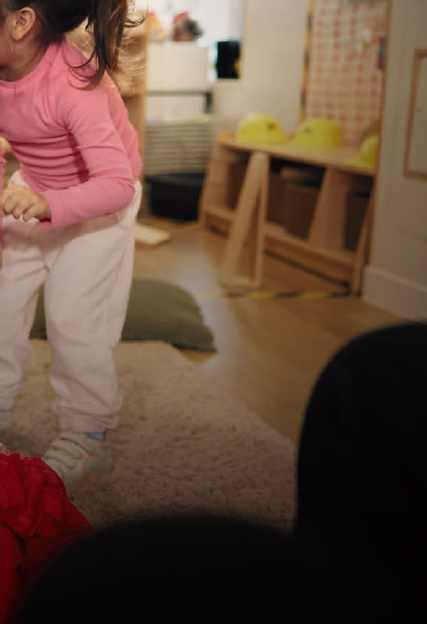

Ask any of our nursery managers, and they’ll tell you that they take their job incredibly seriously – but not themselves.
Because like us, they understand that the best nurseries are led by people with an ability to meet the highest standards of safety, wellbeing, learning and care, without losing sight of what childhood is all about.
That could be you. Inspiring your team, and the children in your care. Earning the trust and support of their parents. Being backed every step of the way by us, as you build a career that really matters.
Come and join our Nursery Management team in North London – with opportunities at Bright Horizons at JW3 Nursery and Preschool, as well as a handful of other settings too!
Scan the QR code or email us at jointheteam@brighthorizons.com to learn more and apply.
At Bright Horizons,


JW3 Building, 341-351 Finchley Road, Hampstead, London, NW3 6ET
Finchley Road and Frognal 3 minute walk
West Hampstead Station 8 minute walk
Finchley Road Station 8 minute walk
Hampstead 15 minute walk




on Rosh Hashanah it is written...
This Rosh Hashanah, we invite you to join us in making a significant impact. Your donation will help us to: Expand our Housepital program, enabling more patients to receive home-based hospital care. Increase our inventory of medical equipment to reach more people in need. Enhance our transportation services, ensuring that no one is trapped in their home due to a lack of mobility options.
will be able to leave hospital?
Who will be trapped in their homes? and on Yom Kippur will be sealed how many will pass from the earth and how many will be created; who will live and who will die; who will die at his predestined time and who before his time; who by water and who by fire, who by sword, who by beast, who by famine, who by thirst, who by storm, who by plague, who by strangulation, and who by stoning. Who will rest and who will wander, who will live in harmony and who will be harried, who will enjoy tranquillity and who will suffer, who will be impoverished and who will be enriched, who will be degraded and who will be exalted.

The answer depends on you!




• www.yadsarah.org.uk
• michael@yadsarah.org.uk
• Reg. Charity No. 294801





Four household name columnists and a professor of Israel studies have resigned from the Jewish Chronicle, accusing the newspaper of being led by “politics rather than journalism”.
Jonathan Freedland, Hadley Freeman, David Baddiel and David Aaronovitch, all major voices in British journalism, announced their departures on social media on Sunday morning. They were later joined by Colin Shindler, professor of Israel studies at the University of London, who has contributed to the paper for more than 50 years.
Freedland, a columnist at the JC since 1998, began his resignation letter by stating his deep family connection to the newspaper. “My attachment to the JC runs very deep,” he wrote. “I have been a columnist since 1998. My late father started writing for the JC in 1951. That bond explains why I have stuck with it even as it departed from the traditions that built its reputation as the world’s oldest Jewish newspaper.


“The latest scandal brings great disgrace on the paper – publishing fabricated stories and showing only the thinnest form of contrition – but this is only the latest Too often, the JC reads like a partisan ideological instrument, its judgements political rather than journalistic.”
Freedland also expressed concern about the JC’s secretive ownership. He warned: “The problem in this case is that there can be no real accountability because the JC is owned by a person or people who refuse to reveal themselves. I and others have long urged transparency, making that case [to the editor] privately, but nothing has happened. For now, I need to break my connection with the JC because I no longer recognise it.”
Hadley Freeman, another key voice at the JC, resigned with a similarly poignant message. She tweeted: “Recent events have made it impossible for me to stay.” Freeman’s decision was followed by David Aaronovitch, who, in an understated post, simply said: “I have done the same.”
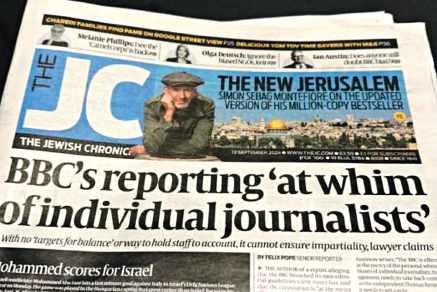
Baddiel, meanwhile, notified the Guardian of his intention to quit the title. The five follow Sunday Times journalist Josh Glancy, who quit the JC over similar concerns in 2023.
Last weekend’s star exodus came after the JC was forced to retract a series of articles about the Gaza war, written by “freelance journalist” Elon Perry, allegedly based on Israeli intelligence sources. Perry’s articles included detailed purported accounts of Israeli operations, including highly sensitive military information and intelligence on Hamas leader Yahya Sinwar and his tactics, including a
supposed plan to smuggle Israeli hostages out of Gaza. Concerns grew after Israeli media described Perry’s work as “fabrications”. The IDF is conducting its own investigation.
In response, the JC published a brief statement at 9.30pm on Friday, after Shabbat had come in, stating:
“The Jewish Chronicle has conducted a thorough investigation into freelance journalist Elon Perry, initiated after concerns were raised about aspects of his background. While we acknowledge his service in the Israel Defence Forces, we found some of his claims to be unsubstantiated. As a result, we have removed his articles from our website and ended our association with Mr Perry.
In 2020 the title was poised to merge with Jewish News to become a diverse voice for British Jewry, before a mystery buyer intervened. The individual’s identity has remained a guarded secret, despite appeals from the Jewish community and the wider journalistic world. • Jewish News statement, p25
























by Lee Harpin
Every school in the country will be required to teach pupils about the Holocaust as a result of the government’s new national curriculum review, Keir Starmer has confirmed.
In a speech at the annual Holocaust Education Trust (HET) dinner in London, the prime minister also committed to ensuring every student had the opportunity to hear a recorded testimony from a survivor as part of a new “national ambition” to improve Shoah education.
“For the first time, studying the Holocaust will become a critical, vital part of every single student’s identity. And not just studying it, learning from it too and, above all, acting on its lessons,” Starmer pledged
In a pointed reference to the 7 October Hamas attacks, the PM said: “Over a thousand people were massacred by Hamas, for the very same reason: because they were Jewish.
“We say ‘never again’ and yet in the last year we’ve seen record levels of antisemitism right here in Britain.”
On the displays of extremism among some on Palestine demos, the PM condemned what he said was “hatred marching on our streets”.
In a well-received speech, later praised by Labour grandee Lord Levy, Starmer vowed to “proudly” build the National Holocaust Memorial near the Houses of Parliament.
Speaking to more than 500 guests, including survivors and their families and Chief Rabbi Ephraim Mirvis, Starmer, who attended the dinner with his wife Victoria, pledged new funding from the government to help deliver school visits to Auschwitz.
He also promised to join the charity himself on a visit to Aus-
chwitz to honour the memory of those murdered there by Nazis.
To applause from those in the room, Starmer said: “Just as I fought to bring my party back from the abyss of antisemitism, I promise you I will do the same in leading the country.”
Reflecting on the new government’s promise to improve teaching in the nation’s schools, Starmer said: “There is currently a review of our national curriculum.
“Well, tonight I am making two decisions in advance of that review. First, the Holocaust will remain on the curriculum.
“Second, even schools who do not currently have to follow the national curriculum will have to teach the Holocaust when the new curriculum comes in. For the first time, studying the Holocaust will become a critical, vital part of every single student’s identity. And not just studying it… learning from it too and, above all, acting on its lessons.”
Starmer added: “Tonight I want to set a new national ambition, that as part of their education every student in the country should have the opportunity to hear a recorded survivor testimony.
“And I want us to fulfil this ambi-
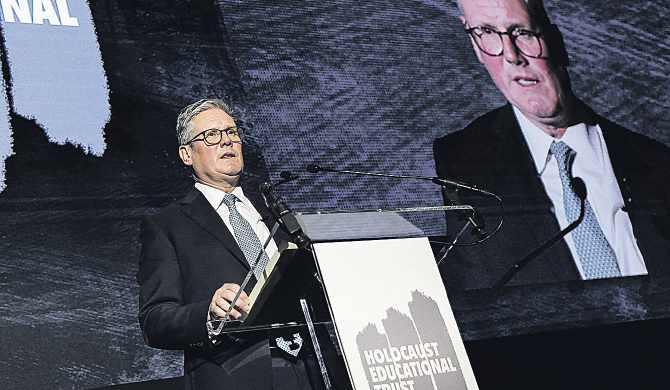
tion, in this precious period while we still have survivors with us able to help us get this right.”
In a moving speech, Starmer also recalled how he had sat with the family of a murdered Hamas hostage.
In a sign of the government’s determination to be seen supporting the work of HET, cabinet ministers including Rachel Reeves, Wes Streeting and Bridget Phillipson were at the event, along with solicitor general Sarah Sackman.
Home Secretary Yvette Cooper was also seen spending time speaking at length with survivors ahead of taking her seat for the dinner.
Starmer’s hint at what is to come in the national curricuum means schools who are not currently required to follow the national curriculum will be required to teach the Holocaust when the government’s new curriculum is introduced.
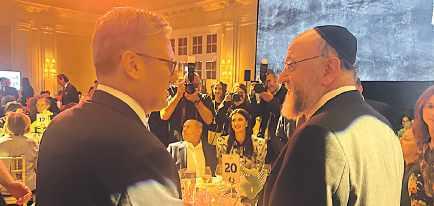
The PM’s speech comes amid months of pro-Palestinian demonstrations across the country in which activists have attempted to reframe the Holocaust around Israel’s ongoing war against Hamas in Gaza.
Looking ahead to Holocaust Memorial Day and the 80th anniversary of the liberation of the Auschwitz camp in January, Starmer praised the HET’s Lessons from Auschwitz programme, which enables hundreds of pupils each year to visit the camp and share their experiences. He is committing to provide at least £2.2m next year to continue the programme.
“Over the last 20 years, tens of thousands of students have had that life-changing opportunity to visit Auschwitz in person and to share their experience with their peers,” the PM went on.
“The shoes, the hair, the suitcases, the train tracks, the gas chamber. It’s utterly, utterly horrific. But it’s a truth we have to remember.”
The PM also commended HET’s Testimony360 programme, which uses advanced technologies to enable students to hear and interact with survivors, who have recorded answers to thousands of possible questions from pupils. And on the record levels of antisemitism seen across the UK over the past year, he said he will recommit government to tackling the problem and protecting Jewish communities.
An exhibition exploring the life and work of a little-known Jewish émigré artist will mark the reopening of one of the world’s leading and most extensive archives on the Holocaust.
Closed for refurbishment works since 22 July, the Wiener Holocaust Library reopens tomorrow (20 September) with an exhibit on Fred Kormis. The renovation of the central London venue marks the first large modernisation of the space since it moved to Russell Square in 2011.
Driven by his conscience in the early 1930s to reveal he was Jewish, thus destroying his career in Weimar Germany, Kormis fled the
Nazis to London, where he worked to reestablish his artistic reputation and went on to create the first Holocaust memorial in Britain, all the while using sculpture and printmaking to make sense of his experiences as a prisoner of war, a refugee and an exile.
The exhibition is drawn from the library’s unique refugee family papers collections and reunites some of Kormis’ most significant artworks from museums and private collections across the country.
A spokesperson told Jewish News: “We have completely refurbished the space with new up-to-date cabinets which will enhance
our ability to showcase our vital collections. Our programme of free public exhibitions is one of the most crucial ways people can engage with the original evidence in our archive.”
The spokesperson added: “We hope the reopening will give people renewed impetus to come and visit this exhibition and those to come – in particular during this time in which learning about antisemitism and where it can lead could not be more important.”
The library’s collection includes more than a million items including published and unpublished works, press cuttings, photographs and eyewitness testimony.
He added: “We will not be silent, we will not look the other way. We will call out antisemitism for what it is: hatred pure and simple.”
HET chief executive Karen Pollock said: “Tonight we came together with over 500 supporters and reflected on the unprecedented challenges we face today – antisemitism at the highest level in a generation, the Holocaust moving from living memory and further into history and the disgusting denial and distortion of the past being seen day after day.
“As we face these issues head on, we are enormously grateful to the prime minister, Keir Starmer, for joining us this evening and clearly highlighting the central place that the Holocaust must continue to have in our national consciousness; and expressing the need for everyone to stand united in the fight against antisemitism today.”
The issue was also touched on by HET chair Craig Leviton, who told guests how survivors repeatedly raised concerns with him about rising antisemitism.
The evening was compered by BBC Radio 4 Today presenter Nick Robinson with attendees also including former Tory minister Sajid David and Conservative peer Howard Leigh, Lord Austin, TV celebrities Rob Rinder and Ed Balls and Jewish Labour figures Luciana Berger and Baroness Anderson.
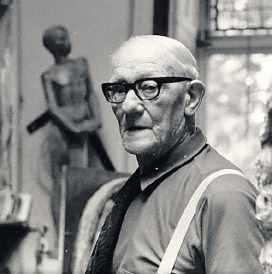

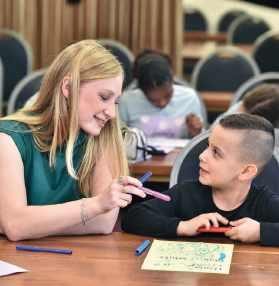

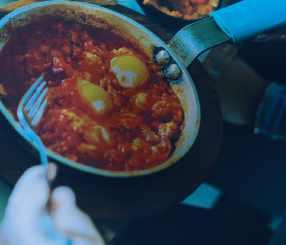

Duration 6 months
Program Dates
January 6, 2025 – July 1, 2025
Eligibility
Ages 21 – 36, identify as Jewish, hold an associates or bachelors degree
Cost
$900 for eligible fellows*
Contact
Adi Singerman at mitf@masaisrael.org

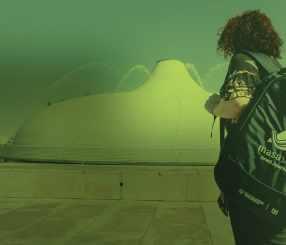



Join Teach for a Semester, powered by Masa Israel Teaching Fellows, and spend six months teaching English to Israeli students while traveling throughout the country. No prior teaching experience or knowledge of Hebrew is necessary!
This is your chance to empower Israeli youth, explore a city of your choice, and build lifelong friendships.
A man has been jailed for life after he admitted starting a fire at his property in Hackney, with the intent of endangering the lives of a Jewish family and their young baby living above, writes Joy Falk.
Ian Pitkin, 64, from Lower Clapton, was sentenced to life imprisonment with a minimum term of six years and 17 days after starting the blaze at his ground-floor flat on 20 March.
He had pleaded guilty at an earlier hearing to arson with intent to endanger life, four counts of possession of an imitation firearm with intent to cause fear of violence, and three counts of having an o ensive weapon in a public place.
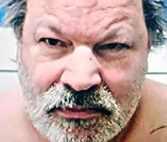

Judge Daniel Fugallo said: “This o ence was motivated by, and demonstrates, a hostility towards people of Jewish faith.”

blazing flat were forced to throw their baby from a second-storey window but the infant fortunately did not sustain any injuries.
One member of the family did su er a broken hip from jumping out of the window after the baby was handed to waiting relatives.

Detective chief superintendent James Conway, policing lead for Hackney and Tower Hamlets, said:“We welcome this significant sentence, which clearly reflects both the danger he posed and this aggravating factor.”
Conway added investigators “were able to evidence the fact that he expressed clear antisemitic sen-
timent on several occasions”, and the Crown Prosecution Service had invited the court to treat racial and religious hostility as “aggravating factors” in the case
The police chief said emergency services had been called to deal with the blaze and Pitkin was arrested shortly after while seeking medical attention for his own injuries during the fire.
The Jewish family inside the
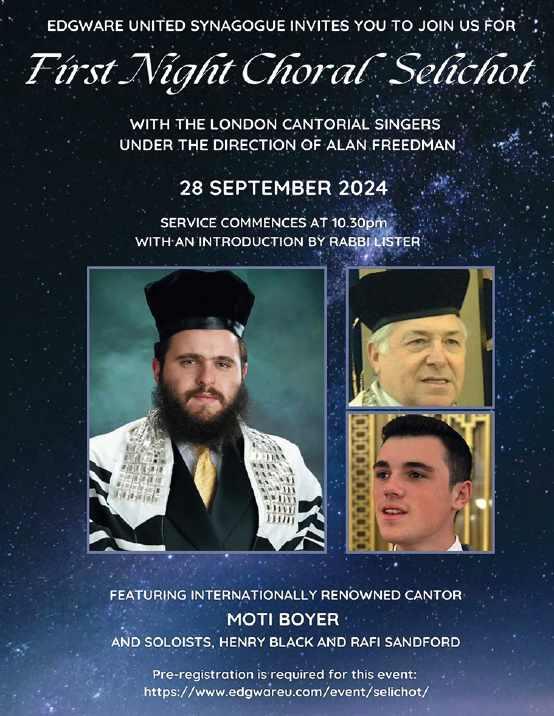
The infant was checked by paramedics and was fortunate to come away unharmed, Conway said.
In total, five people, including a passerby, were injured in the fire.
Pitkin appeared at Wood Green Crown Court for sentencing after entering guilty pleas to the charges at the earlier trial.
Conway said the damage to the building spoke for itself and “it was remarkable that nobody was more seriously injured”.
“However, the psychological impact was well evidenced through the victim impact statements which were submitted to court, with victims reporting hearing explosions as the fire took hold in the property below them.”
An Israeli humanitarian organisation and the Hostages and Missing Families Forum in Tel Aviv are receiving care packages in memory of a Hertfordshire mother of three who died from sepsis last year.
Melodie Robey, 47, from Carpenders Park died on 5 October, leaving behind three young children. The Hamas terror attacks took place two days later and Robey’s surviving brother Daniel, sister-in-law Michele and long-standing friends determined to undertake good works in Israel in her memory.
Ahead of what would have been her 48th birthday, two huge bags of new toys, games, puzzles and stickers were flown over by a supporter for cardiac healthcare organisation Save A Child’s Heart (SACH) in Tel Aviv.
Laura Kafif, housemother at the SACH home in Holon which supports 37 children said: “We were thrilled to receive the gift bags filled with new puzzles, toys and arts and crafts items for the children.
“These items are used daily by the children and constantly need replenishing. I want to extend our profound gratitude to all the people who made this happen.”
Sister in law Michele Robey told Jewish News: “It meant the world to us as a family in honour of our beloved Mel to be able to organise donations to the children.”
Dame Esther Rantzen has welcomed the verdict of a citizens’ jury on assisted dying after a majority said it should be permitted in England.
The Jewish broadcaster and Childline founder, who has terminal cancer, described the current law as a “cruel mess”.
group of 28 brought together by the Nuffield Council on Bioethics (NCOB),
The so-called ‘jury’, a randomly selected group of 28 brought together by the Nuffield Council on Bioethics (NCOB), deliberated for eight weeks.
service must be terminal and have the capacity to make the decision themselves.
One jury member, Ashok, with experience of working with people over 65 and in palliative care, said: “There was an incident where there was a lady who had terminal cancer, and she had to su er for over seven months because she refused treatment, but she was not allowed to die. So we had to watch her die on a daily basis.”
Twenty jury members agreed the law should change to permit assisted dying in England. Seven people disagreed and one person was undecided.
Twenty jury members


NCOB assisted dying advisory board chair professor Anne Kerr said: “The jury findings indicate broad support for a change in the law in England, with some important details about what this should involve.”
Jury members who voted in favour said assisted dying should be allowed to stop pain, and give people a decision to end their lives and the knowledge they can have a dignified death.
They also said it would allow people to avoid prosecution for helping a loved one to die.
Those against warned it could be used for the wrong reasons, misinterpreted, misused and result in less funding for palliative care.
When asked what the law should include on assisted dying, the jury said people accessing the
after Dame Esther said she
The topic has been in the spotlight for the last year after Dame Esther said she had joined Dignitas.
An Assisted Dying Bill introduced in the House of Lords in July by former Labour justice secretary Lord Falconer is expected to be debated in November.
Labour justice secretary Lord Falconer is expected to
fessor Anne Kerr said: “The support for a change in the law she refused treatment, but she was not her die on a daily basis.”
A government spokesperson said successive governments had agreed any change to the law was a matter for parliament to decide and “this government has made clear that time will be provided for a proper debate and vote on any legislation brought forward”.
A government spokesperson
Catherine Robinson, spokesperson for Right To Life UK, said : “Citizens’ juries do not always represent the views of the public as a whole.”
She added: “Our laws are made in the UK parliament, which has consistently rejected the introduction of assisted suicide which has put vulnerable people at risk in countries where it has been legalised.”




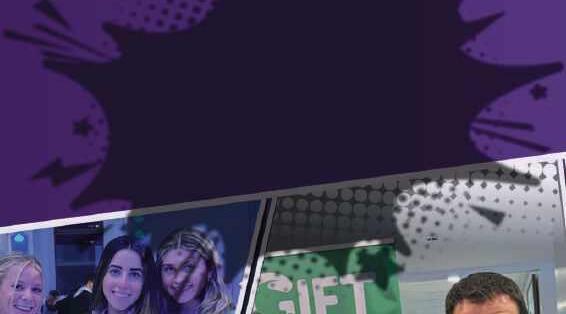

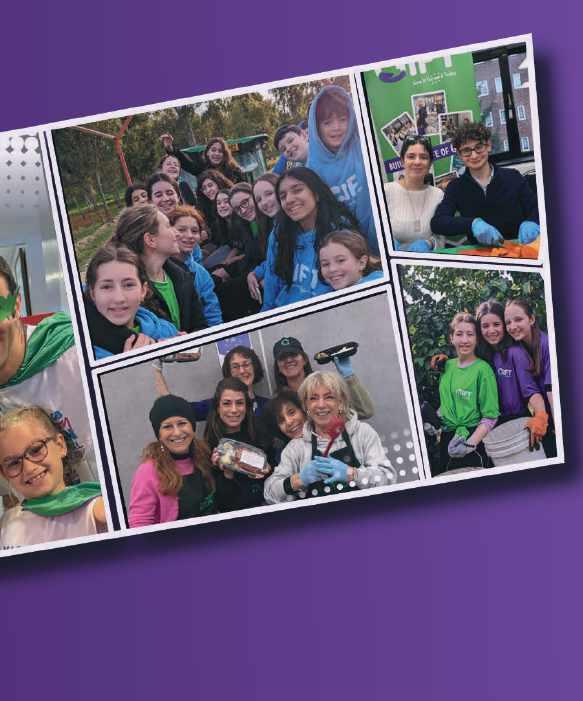


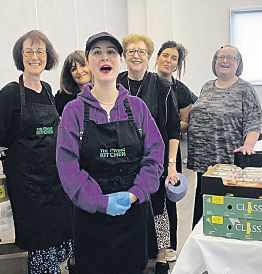
Social action charity GIFT launches its largest fundraising campaign to date on Sunday, aiming to raise £1.2m in 36 hours by encouraging 10,000 individuals to donate, writes Michelle Rosenberg.
This year’s initiative, Be a Giving Hero, has a two-fold mission: to raise much-needed funds and to inspire the Jewish community to engage in meaningful acts of giving ahead of the new year.
GIFT says the campaign is a vital step in its mission to foster a generation of givers, with funds directly supporting educational programmes, food distribution to families and volunteer opportunities that strengthen the community.
One of the campaign’s key components is the Giving Hero Missions programme in schools and cheders. Designed to engage primary school children, the initiative encourages young people to complete small but impactful acts of kindness such as holding the door open for someone or picking up litter.
Children participating in the missions will wear special “hero masks,” as a way of helping them to realise they can be heroes in their own communities, shaping the next generation of givers in a fun and meaningful way.
Jewish News visited GIFT HQ to take part in the regular Tuesday hot meal preparation session.
GIFT makes 500 meals a week with Tuesday’s 200 made up of hot chicken, roasted vegetables and potatoes, soup and fresh bread. Alongside the 300 meals prepared on Wednesdays, they are delivered to families where at least one person is disabled, sick, on a low income or unable to cook.
GIFT programme director Shira Joseph said: “We’re not here to solve food poverty. We’re not a food bank.
“We do help loads of people in the community but our goal is to engage the community in acts of kindness and bring everyone together; to be outward-focused and to think what they can do to help the world around them.”
Two renowned Jewish philanthropic foundations have partnered in an historic endeavour to remodel the Jewish educational landscape across Europe.
Yael Foundation founder Uri Poliavich and Ronald S Lauder Foundation president Ronald Lauder will work to
revitalise Jewish education with philanthropic gifts totalling millions of pounds.
Projects include supporting renovation and expansion of a Jewish school in Rome, the 100-year-old Scuole Ebraiche di Roma, contributing nearly £12m towards the £21m target.
Lauder, whose foundation has been supporting the school for many years, said: “I have been waiting decades to partner with people like Uri and Yael, and this partnership represents the best news for Jewish schools in Europe over the past 20 years.
“As an organisation deeply
committed to advancing Jewish day schools across Europe, we believe this renovation is the project of a century, and are incredibly honoured to be part of it.”
Poliavich said: “We established Yael Foundation out of a deep passion for providing access to high-quality Jewish
education and making it universally accessible for children all over the world.
“Growing up in an area that lacked such opportunities, I feel personally compelled together with the Lauder Foundation to ensure Jewish children have access to exceptional Jewish learning.”

Self-described “old muso” Tony Abrahams, who runs several popular bands in London, has launched a new venture stemming directly from the 7 October attacks.
With his band The Soul Agents, he has organised two nights of music in aid of Natal, Israel’s premier mental-health NGO.
The organisation specialises in mental health and trauma support and says its workload has soared in the wake of the Hamas assault.
Abrahams and his bandmates make many appearances on the music scene, some for charity and some not, and have raised millions for good causes.
Now he says demand for the music and interest in Natal is such he may have to consider a third function as the 7 October anniversary approaches.
Donations to the UK Friends of Natal can be made via PayPal Giving.
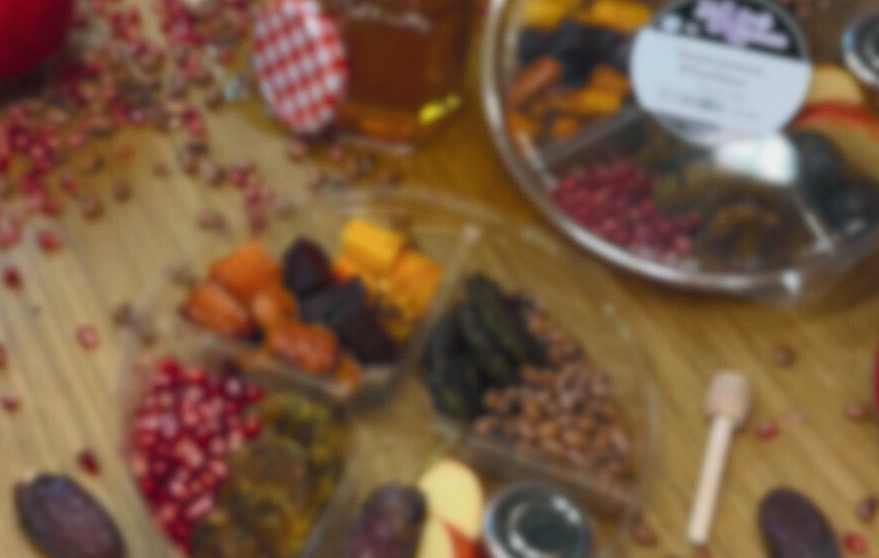






Death certification will be speeded up under the new rules
Changes to the ways in which death is certified formally in the UK, announced by the last government in April, came into force last week, writes Jenni Frazer.
The updates, the first overhaul in more than 50 years, essentially mean a speeding-up of the process immediately following a death, with the consequent advantage to the Jewish community of speedy burial.
The reforms are taking place under the aegis of the Department of Health and Social Care.
Previously, doctors could issue a medical certificate cause of death (MCCD) only if they had attended the deceased within 28 days before death.
The changes will mean medical practitioners can complete this certifi-
cate — without which a person cannot be buried — if they have attended the deceased “in their lifetime”. The doctors can propose a cause of death “to the best of their knowledge and belief”.
Once the certificate is issued, it goes to a medical examiner, a senior practitioner, to complete. The MCCD is then sent to the registrar, crucially without meeting a coroner at any stage in the process, unless there is a suspicion of death by unnatural causes.
Welcoming the reforms, Baroness Merron, formerly, as Gillian Merron, chief executive of the Board of Deputies, said: “These reforms will o er crucial support to the bereaved as well as vital improvements to patient safety, and I wish to share my gratitude to all those involved in delivering them.
Film star Gal Gadot joined Israeli president Isaac Herzog on Sunday for the online launch of a global initiative celebrating Jewish unity.
“That includes the Board of Deputies, who have been closely involved in this process.
“A key concern of faith groups has been the impact of medical examiner scrutiny delaying funerals, and this has been an important consideration when designing these reforms.
“I am pleased to say there is provision within the new system to minimise the potential of delays to burial to allow for the religious practices of the deceased and their family to be respected.
“Rapid release can be requested to prioritise cases that require urgent attention, and the new measures will be proportionate so as not to impose undue delays on the bereaved in the di cult moments following a death.”
The programme also featured Israeli journalist Tamar Ish Shalom
‘Voice of the People’ brought together Jewish voices from around the world to showcase the strength, unity and resilience of the Jewish people in the face of unprecedented challenges, with a live conversation between the president and Gadot on Jewish pride and perseverance.
in conversation with Daniel Lifshitz, grandson of hostages Oded and Yocheved Lifshitz, and a performance by Michal Greenglick, sister of Shaul Greenglick, who was killed in action during the war in Gaza.
The symposium marked the opening of applications for a new ‘Voice of the People’ leadership body that will elevate diverse Jewish perspectives on pressing issues, with president personally inviting 150 Jewish leaders from across the globe to play a crucial role.




Thursday 7 November – Sunday 17 November 2024
We’re really excited to be adding this amazing itinerary to our 2024 programme. An absorbing experience that combines the challenge of cycling off the beaten track with dramatic backdrops and the calming tranquillity of a stunning country and culture.
If you have adventure in your soul, a huge sense of camaraderie and a passion to help some of the most vulnerable in our community, then join us!
Places are limited so we recommend booking early.


REGISTER NOW via the QR code or our website, or for details talk to Julie on 07718 969138 or at julie.braithwaite@norwood.org.uk Scan me or visit norwood.org.uk/

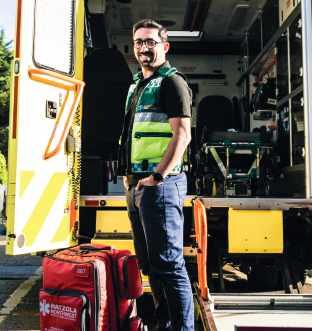


Some 2,700 Hezbollah terrorists are reported injured — 200 critically — after a security operation in which personal pagers exploded simultaneously in towns all over Lebanon, writes Jenni Frazer.
The impudent attack was blamed on Israel by the Lebanese Shia militia. Israel has so far not commented publicly.
It is said to have been a response to a planned assassination attempt on a former senior Israeli defence o cial, which was thwarted by Israeli intelligence and security forces.
The pager operation is also likely to have been in response to the large number of Hezbollah rockets fired at northern Israel in the past months.
The attack wounded so many

men so severely because they routinely keep the pagers in the pockets of their jeans.
The detonations lasted for about an hour on Tuesday with one report saying ambulances were
choking the streets all over Lebanon as the dead and inured were rushed to hospital.
Social media was alight with speculation on how the operation had been carried out — whether
the pagers had been seized before distribution to Hezbollah members and tampered with, or if their batteries had been primed to overheat and detonated remotely
Either way, it is seen as a massive breach of Lebanese intelligence likely to result in a swingeing response as Hezbollah seeks to take revenge.
Conversely, given the number of victims of the surprise attack, it is hard to know who would be carrying out Hezbollah’s response.
According to one report, Hezbollah leader Hassan Nasrallah had warned his men to use the pagers to communicate with one another instead of phones, as smartphones were considered too susceptible to potential cyber attacks by Israeli security forces.
Argentina experienced a 44 percent increase in reported antisemitic incidents in 2023, mostly after the 7 October attack on Israel, according to a report issued this week by the country’s Jewish umbrella organisation.
The report makes Argentina the latest country to record a spike in antisemitism fol-



Israel’s security cabinet this week updated its o cial goals for the war with Hamas in Gaza to include allowing residents of the north to return safely to their homes after being displaced by attacks by Hezbollah.
“The safe return of the residents of the north to their homes” has been added as a fourth objective to the war, a statement said. “Israel will continue to act to achieve this.”
There were previously three declared goals: elimination of Hamas’ military and governing capabilities, return of hostages and ensuring Gaza no longer poses a threat to Israel.
The cabinet motion came more than 11 months after tens of thousands of northern residents were displaced when Hezbollah began attacks following the Hamas assault, saying it was doing so in support of Gaza.
Israel has threatened to launch a major operation to push Hezbollah away from the border, and the change to the war goals came as US special envoy Amos Hochstein visited Israel in an attempt to reach a diplomatic solution and avoid further escalation.
lowing the attack and the subsequent IsraelHamas war in Gaza. Antisemitism watchdogs in the US, Germany and elsewhere across Europe have all recorded steep rises.
According to the Israeli organisation DAIA, which unveiled the report at the Buenos Aires City Legislature, 57 percent of all antisemitic incidents last year took place in the three months after the attack by Hamas terrorists.




The organisation found blame on Israel rose sharply as the cause of antisemitic incidents. In 2022, about 11 percent of antisemitic incidents in Argentina related to Israel. Last year, the proportion was 40 percent.
Hezbollah has said it will stop only once the war in Gaza ends, though many Israelis fear the north will remain under threat as long as the Iran-backed terrorists can operate along the border. Many displaced residents have urged the government to take military action as the only way to make their homes safe again.
We’re a little different from other Estate
Do you have a property to sell or let?
List it with us and we will take the stress out of finding a buyer or tenant
Why choose Squires?
Established in 2004, we advertise on all the major property portals including Rightmove and Zoopla and have 3 linked branches within North-West London.
Why choose me?
With 15 years experience I have a deep understanding of the local property market and living in Hendon means I have a wealth of useful contacts.
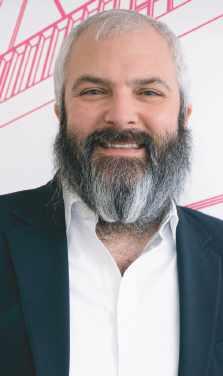
Editorial comment and letters to the editor
Benjamin Netanyahu’s leadership was a deeply contentious issue for British Jews long before the appalling events of 7 October. This week’s report from the Institute for Jewish Policy Research solidifies this.
Four out of five British Jews have an unfavourable view of the Israeli prime minister. This is not solely due to current events but stems from frustration with Netanyahu’s long-standing policies, alliances with farright loons and the direction Israel has taken under his leadership.
Key military figures responsible for Israel’s security during the 7 October attacks have, one by one, taken public accountability for their failings, but the man ultimately in charge remains unwilling to acknowledge responsibility. Perhaps he genuinely believes he is blameless. But his stubbornness suggests a leader whose main concern is his survival, not Israel’s integrity.
Netanyahu’s judgement is increasingly in question, and his decision to surround himself with fanatics like Itamar Ben-Gvir and Bezalel Smotrich has only worsened the situation. These figures, who hold views far removed from common decency, have brought deep shame on Israel’s government. Their statements since 7 October have also, unforgivably, provided ammunition for the International Criminal Court’s slanderous charge of genocide against Israel.
Israel now stands at a crossroads. The country needs healing, stability and visionary leadership. Just as Gaza cannot be governed by Hamas, Israel cannot continue with a leader who is widely distrusted at home and abroad. Netanyahu’s time is up. Recognising this is best for Israel’s future and the UK Jewish community.
Publisher and
Ferrer
020 8148
8148 9701
@jewishnews.co.uk
8148 9709
Yet again, in Lord Carlile endorsing the government’s partial arms ban against Israel fighting a defensive war, we are presented with the sickening spectacle of a Jew in a privileged position abasing himself by turning on his own to burnish his own credentials.
He claims that the legal advice was correct that there is a clear risk that those armaments might be used “to commit or facilitate a serious violation of international humanitarian law” by the Israel Defence Forces, without giving evidence, yet the same could be said of the Zelensky government in Ukraine. Israel’s record in protecting enemy civilians has been lauded by distinguished non-Jewish military experts as a world leader in this regard.
Keir Starmer’s government is facilitating just such a violation of law by restoring funding to UNRWA, which was shown to be complicit
in war crimes against Israel on 7 October and has been long suspected of even encouraging violence against Israelis.
Starmer’s decision has nothing to do with law and everything to do with Labour’s perceived interests, mainly in trying to win back Muslim voters who turned against it for initially supporting Israel.
As to Carlile publicly condemning Benjamin Netanyahu for “the continued conflict in Gaza”, he might like to remind himself who the are the victims and who the aggressors.
When Hamas states that it will visit 7 October again and again on Israel until it is no more, what would he have Netanyahu do to end the war without removing the lethal threat from Hamas’ depravity, once and for all?
Colin Rossiter WC2A
It was reassuring to read that Sir Keir Starmer, speaking at the Holocaust Educational Trust annual dinner on Monday, said he would keep Holocaust education on the National Curriculum.
As has been made all too clear following the horrific attacks by Hamas on 7 October, teaching children about the Holocaust is needed now more than ever before.
The aftermath of the attacks have revealed the cesspit of hate on social media but also, sadly and frighteningly, in the real world, with pro-Palestinian marches that contain antisemitic imagery (indeed, Mr Starmer called it “hatred marching on our streets”), not to mention attacks on Jews while they are going about their business.
The fact the government is reviewing the National Curriculum and will ensure that all schools, including those that can set their own curriculum, will have to teach about the Holocaust is very welcome. While most schools probably do teach the subject, the Prime Minister’s plans will hopefully make sure others will also now engage with this critical subject.
I was also pleased to read that he has promised increased funding to help support school visits to Auschwitz. Seeking this chilling and murderous site provides another dimension to understanding the genocide that took place and to learning its lessons to indeed be able to say: Never again. Ms Frances Hudson, Brighton
Why is it that people like your columnist Eve Sacks and her Nahamu organisation feel they need to tell everyone else how to live their lives according to their perceived truths, to the extent that she lobbies government to prevent people from living their lives as they wish?
Nahamu’s sole existence is to cause trouble for those not conducting their lives the way Eve has decided they should live, based on their own perceptions. Live and let live.
She feels sorry for her compatriots who studied less secular subjects than she did, but the evidence shows that those being brought up in the Charedi educational system enjoy a far better quality of life than any other population on Earth. Bar none. Ann Cohen, Golders Green

Thank you for helping to make Jewish News the leading source of news and opinion for the UK Jewish community. Unlike other Jewish media, we do not charge for content. That won’t change. Because we are charity-owned and free, we rely on advertising to cover our costs. This vital lifeline, which has dropped in recent years, has fallen further due to coronavirus.
Today we’re asking for your invaluable help to continue putting our community first in everything we do. For as little as £5 a month you can help sustain the vital work we do in celebrating and standing up for Jewish life in Britain.
Jewish News holds our community together and keeps us connected. Like a synagogue, it’s where people turn to feel part of something bigger. It also proudly shows the rest of Britain the vibrancy and rich culture of modern Jewish life.
You can make a quick and easy one-off or monthly contribution of £5, £10, £20 or any other sum you’re comfortable with. 100% of your donation will help us continue celebrating our community, in all its dynamic diversity. Support Jewish News by visiting our donor page at jewishnews.co.uk



















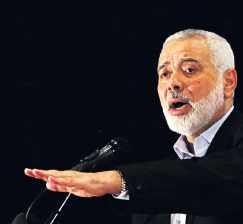





























Recent events at the Jewish Chronicle have highlighted the importance of transparency in the ownership of community news and media. The Jacob Foundation, a registered charity with independent trustees drawn from the worlds of law, finance, media and interfaith, is the proud owner of the Jewish News
You may remember the very successful crowdfunding campaign we ran a year ago, bringing in hundreds of new donors and raising more than £150,000.











The objectives of the Jacob Foundation are to promote cohesion within the Jewish community, between the Jewish community and other communities in the UK and to support the vital work of the many Jewish charities and other institutions. We do this by supporting the excellent work of the Jewish News which we see as a critical piece of community infrastructure. Particularly at times like these, our community needs and deserves a reliable and dependable source of news, reporting on issues which concern us all as British Jews. The Jewish News also promotes community projects and seeks to advocate in a balanced way for British Jews whenever it has the opportunity.
I and my fellow trustees, supported by co-publishers Richard Ferrer, Justin Cohen and their amazing team, are all deeply committed to the importance of keeping us all connected by maintaining a viable, trusted and accountable voice to inform, inspire and celebrate our vibrant and rich community.
Connection is at the heart of all that we do, whether you are one of the thousands who read the newspaper, the hundreds of thousands who view the stories on our website every week, or one of the millions who view content produced by the Jewish News team on social media every month.
We accept that we may not always get it right and that it is not possible to please everyone all the time, but our objectives, ownership and identities are transparent and available to all.
If you have any questions or concerns, please feel free to write to me directly through the editor’s office at the Jewish News.





I personally became involved in Jewish media around five years ago, as one of a group of people who recognised the unique opportunity to merge the Jewish News and Jewish Chronicle for the benefit of the community. We wanted to create a single, proud, diverse voice, reflecting the rich cultural life and interests of our vibrant Jewish community. For reasons that have been covered elsewhere, that merger did not succeed, and new ownership, still undeclared, took control of the Jewish Chronicle.
Since then, we have been incredibly fortunate that a lot of the donors who stood ready to support the merger process have stayed with us and continue to provide incredibly generous support through their donations. Running local and community media is a challenging space and the Jewish News requires considerable financial support to continue its work. We are constantly inspired by the generosity of our donors, who include many charitable foundations, and are always keen to welcome new supporters.
Thank you for your continued support for the Jewish News.
Shabbat shalom.
Robert Gibber Chairman The Jacob Foundation
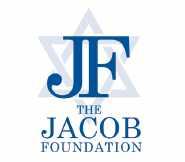

creator of CBS, William S Paley, was Jewish. Now the network is part of the entertainment conglomerate Paramount Global.
Among the most propagated antisemitic tropes is one alleging Jews control the media. Readers of British-Israeli lawyer Trevor Asserson’s forensic report on BBC proPalestinian bias might dispute that.
At present in the UK, none of our national newspapers – there are up to nine still on the newsstands each day – can claim Jewish ownership, although that could be changing with what has been described as an ‘American’ bid for the Telegraph titles.
Nor do linear broadcasters the BBC, ITV, Channel 4 or Channel Five enjoy Jewish ownership. C4 does have a Jewish head of content, Ian Katz. The proprietorship of streaming services and cable is much more complex, although Sky owner Comcast is controlled by Jewish mogul Brian Roberts.
There was a time when it was possible to claim several of the most important media outfits in America were in Jewish hands. The
Similarly, two of America’s most influential newspapers have Jewish roots.
The New York Times is controlled, through super-voting shares, by the OchsSulzberger dynasty. Followers of the paper’s coverage of Israel’s current war on Hamas would be hard put to claim pro-Jewish bias.
The e ective founder of the modern Washington Post, Eugene Meyer, also was Jewish. But his heirs, the Graham family, sold out as newspapers struggled in the online world. Amazon mogul Je Bezos is now the proprietor following a tradition of rich men enjoying the trophy assets.
Arguably, antisemites might suggest Meta, which owns Facebook, WhatsApp and Instagram and is the source of unmonitored news for many young people, is Jewish, owned via Mark Zuckerberg. One would be hard pressed to prove he had any influence over content. To the contrary, organisations such as the B’nai B’rith anti-defamation league have become the biggest critics of
what appears on social media. It argues that the minds of a whole new generation of pro-Palestinian critics of Israel have been educated into hatred by social media.
Against this background, it is fascinating to note that after the sale of The Spectator to hedge fund boss Paul Marshall for a cool £100m a new ‘American’ bidder has emerged for The Daily Telegraph. This is important to the British Jewish community in that the Telegraph titles have been unwavering in support of Israel in its campaign against the Hamas atrocities of 7 October.
The new would-be publisher of the Telegraph is Dovid Efune. He first made his mark in journalism at the pro-Israel and international publication Algemeiner Journal
Having succeeded in putting the publication on the online map, he moved on to the New York Sun, a conservative paper once owned by the Pulitzer family, which traces its heritage back to the early 19th century. It ceased publication in 2018 amid the online revolution and was brought back to life as a digital-only journal by Efune in 2022. Now Efune has a new target his sights.
Described as an ‘American’ in British newspaper reports, Efune is the son of Brighton & Hove’s much revered Chabad Rabbi, Pesach Efune. Dovid Efune reportedly has secured funding from the investment firm Oaktree, which has $193bn under management; Hudson Bay Capital, and the family o ce of hedge fund trader Michael Lefell, a prominent supporter of Jewish education and the state of Israel.
Financial details of the Efune o er are scanty. The original valuation placed on the Telegraph Group was £600m, but as the auction has progressed other potential buyers including DMGT have emerged.
An o er from US private equity firm RedBird (which has a stake in Liverpool FC) and backed by an Abu Dhabi financier was blocked by the Tory government. It was thought unfitting for Middle Eastern potentates e ectively to own a large-circulation newspaper in Britain.
Where the bid led by the New York Sun publisher will end up is anyone’s guess. If successful, the Telegraph would be the only national newspaper in Jewish ownership.


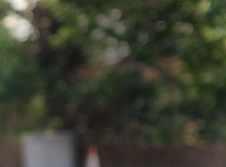


Join us
EGALITARIAN SERVICES WITH EVERYONE TOGETHER
80+ REFORM AND LIBERAL SYNAGOGUES ACROSS THE UK
ALTERNATIVE, FAMILY AND MUSICAL OPTIONS
FREE TICKETS FOR YOUNG ADULTS (AGES 18-26)



INCLUSIVE AND ACCESSIBLE PRAYER AND STUDY


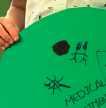






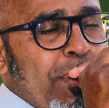





















SERVICES OFFERED IN PERSON AND ONLINE


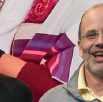
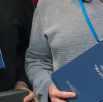
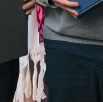





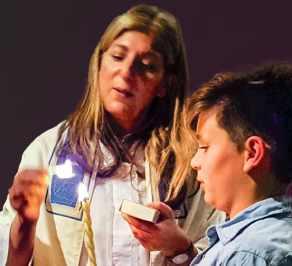
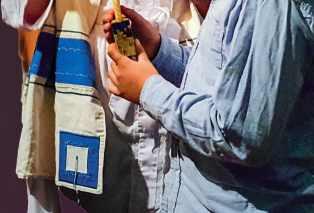



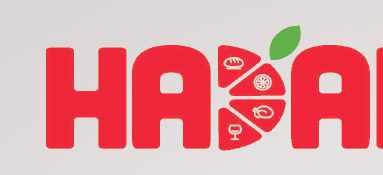













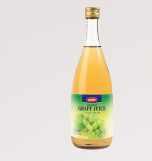














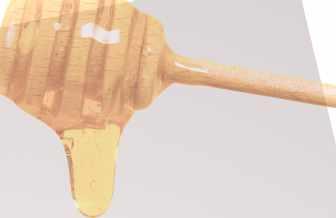





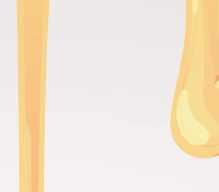







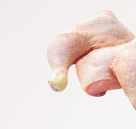
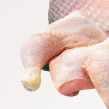

































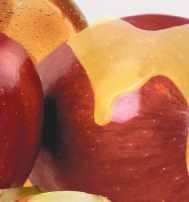





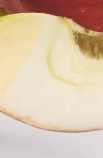

























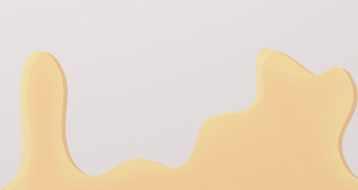


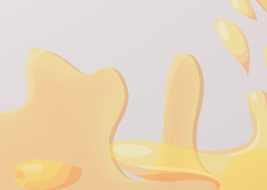
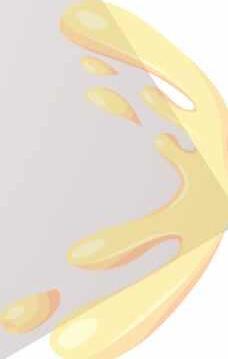

HOLOCAUST EDUCATOR AND SOCIAL MEDIA INFLUENCER
As I stood in the Austrian parliament for the Never Again?
Democracy Cannot Tolerate Antisemitism conference, I thought of my great-grandmother, Lily Ebert.
She is 100 years old, an Auschwitz survivor and someone who has spent her life sharing her testimony of the horrors of the Holocaust to ensure history never repeats itself.
Despite this, 80 years on from the Holocaust, Jewish communities in Europe and worldwide live in fear. This year, 9/11 is particularly significant for Jewish people, the first 9/11 since the atrocities of 7 October.
This was not an isolated event. It unleashed a wave of antisemitism, with some celebrating the massacre and using it as an excuse to express hatred against Jews worldwide. Again, Jews find themselves forced to live in the shadow of hatred.
In Europe, nearly four out of five Jews
conceal their identity to avoid harassment. This is happening in the same places where just 80 years ago millions of Jews were deported and murdered. Austria, where the conference took place and once a centre of Holocaust atrocities, now stands as a reminder of the past and a symbol of the urgency to confront the present.
The reality that only 80 years after the Holocaust, Jewish communities in Europe are living in fear again cannot be ignored. Antisemitism did not disappear with the liberation of the gas chambers; it evolved and adapted, as it has done throughout history.
I call what we now face the “Israelification” of antisemitism. The Jewish state has become a means to an end for the same hateful rhetoric directed Jews for centuries.
Slogans like From the River to the Sea are not calls for peace but thinly-veiled demands for the eradication of the Jewish people.
Antisemitism, and by extension baseless hatred, cannot simply be legislated away. Laws against hate crimes are imperative, but they alone cannot dismantle deepseated hatred. Antisemitism is more than
an expression of hate but a worldview, passed down through generations and deeply ingrained in cultural narratives. It is fuelled by education and indoctrination, by schoolbooks that teach hatred, by media that skews reality and by political discourse that o ers it a veneer of legitimacy.
The West must hold institutions like the United Nations accountable for allowing antisemitic textbooks in schools in Gaza and the West Bank. Children are taught to hate from a young age, perpetuating a cycle of violence and prejudice that pushes any hope of peace even further away.
Traditional media, too, has a role. In the UK, the BBC has done more to fuel antisemitism than any other institution, using public funds to spread biased reporting that distorts the truth. It isn’t just irresponsible journalism – it is an active contribution to the growing tide of antisemitism with a one-sided narrative that vilifies Jews and Israel.
In addition, we find antisemitism beginning unabashedly to stream in from all political corners. It is no longer confined to the far-right, as it once was in Europe. Today,
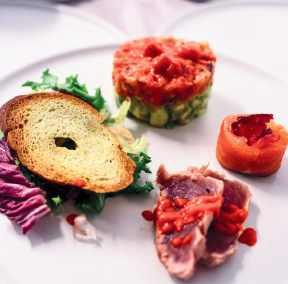
left-wing antisemitism and radical Islamist antisemitism are equally and even more dangerous. It is thriving across the political spectrum, and we must confront it head-on.
As the great-grandson of a Holocaust survivor, I will do all I can to encourage others never to turn a blind eye to this resurgence of hatred. I know too well the cost of silence. “Never Again” must be more than a slogan but a commitment to action, a commitment to fight for a world where Jews can live without fear, in Israel, in Europe, or anywhere they choose to call home.
The shadows of the past loom large, but we have the power to dispel them. We must commit not only to remembrance but to taking actionable steps. The fight against antisemitism is not just a Jewish fight but a fight for the future of democracy. If we fail to confront this ancient hatred in its modern form, we risk allowing it to fester once again. We must act, and we must act now.
Fighting the age-old plague of antisemitism with the status quo isn’t working. First they come for the Jews, but history is clear: if unchecked, the whole of the West is next.




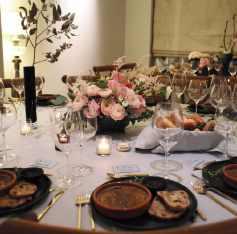





MICHAEL RUBIN DIRECTOR, LABOUR FRIENDS OF ISRAEL (LFI)
News that Iran has exported more than 200 ballistic missiles to bolster Vladimir Putin’s war in Ukraine has earned swift and strong condemnation – and tough sanctions – from Foreign Secretary David Lammy and our allies in the US, France and Germany.
The latest sanctions announced – which target key players and organisations involved in facilitating Iran’s military support for Russia and, by restricting national carrier Iran Air, will also begin the termination of all direct air services between the UK and Iran – add to the more than 400 sanction designations in place on Iranian individuals and entities.
Tehran’s defiance of warnings from London, Berlin and Paris underlines once again its contempt for Western opinion and its status as an international pariah. Iran – which has supplied Russia with hundreds of deadly “suicide drones” – remains the only country in








the world besides North Korea that is willingly and directly helping Putin’s war machine butcher Ukrainians. It demonstrates that, despite the election of a “reformist” as president, hardliners led by Ayatollah Ali Khamenei remain firmly in the driving seat.
And it shows what we have long known: that Tehran presents a growing danger to our security and that of our European partners and friends. Iran’s arsenal of ballistic missiles – the biggest in the Middle East – has a range that can reach NATO and EU territory. Iran’s breakout time – the time required to produce su cient weapons-grade uranium for a nuclear weapon – is now “probably one or two weeks”, the US Secretary of State suggested in July.
Nor should we be in any doubt that Moscow and Tehran’s blood-soaked alliance is set to grow still stronger. Barely two weeks after the 7 October attacks, Foreign Minister Sergey Lavrov announced that a comprehensive strategic partnership between Russia and Iran – “a new big treaty,” in his boastful words – was “at an advanced stage” and “85 percent agreed”. Reports from Iran and Russia suggest it will be
signed at a meeting of the BRICs next month –just after the 7 October anniversary.
In the UK, Tehran is engaged in a multitude of nefarious activities. Since the start of 2022, the previous government confirmed in January, there have been “at least 15 credible threats and plots” to kill British or UK-based individuals by the Iranian regime. At the same time, Iran’s ideological centres in the UK – which operate through a network of mosques, community centres and charities – are promoting its violent and extremist ideology and working to foster antisemitism and hatred.
That’s why – as part of our e orts to fight the scourge of anti-Zionist antisemitism at home – LFI advocates measures to counter Iran’s support for radicalisation, including a ban on entry permits to Iranian extremists, and the closure of those ideological centres propagating the regime’s violent and extremist ideology. We also support a drive to identify and sanction its regime oligarchs, elites and proxies in the UK, treating them similarly to Putin’s regime.
But, as a new LFI paper on Iran’s Axis of Resistance details, at the heart of Tehran’s
e ort to spread violence and bloodshed across continents rests the increasingly radical Islamic Revolutionary Guard Corps (IRGC). The ideological vanguard of the Iranian regime, it was founded on a mission to secure and export Iran’s “Islamic revolution”, and sees itself engaged in a struggle with a “Arab-ZionistWestern axis”. The IRGC’s Quds Force is an extraterritorial unit that operates sophisticated networks to smuggle advanced weapons including ballistic missiles and provide training and resources to these groups. Crucially, it is ideologically “hardwired” to create, strengthen and spread non-state proxies.
In opposition Labour supported proscription, and pledged in our manifesto to overcome the legal complexities and “take the approach used for dealing with non-state terrorism and adapt it to deal with state-based domestic security threats”.
The announcement by Mr Lammy shows the new government’s determination to tackle the Iranian threat. We will be supporting it in this e ort and urge action to institute a ban on the IRGC as swiftly as possible.


























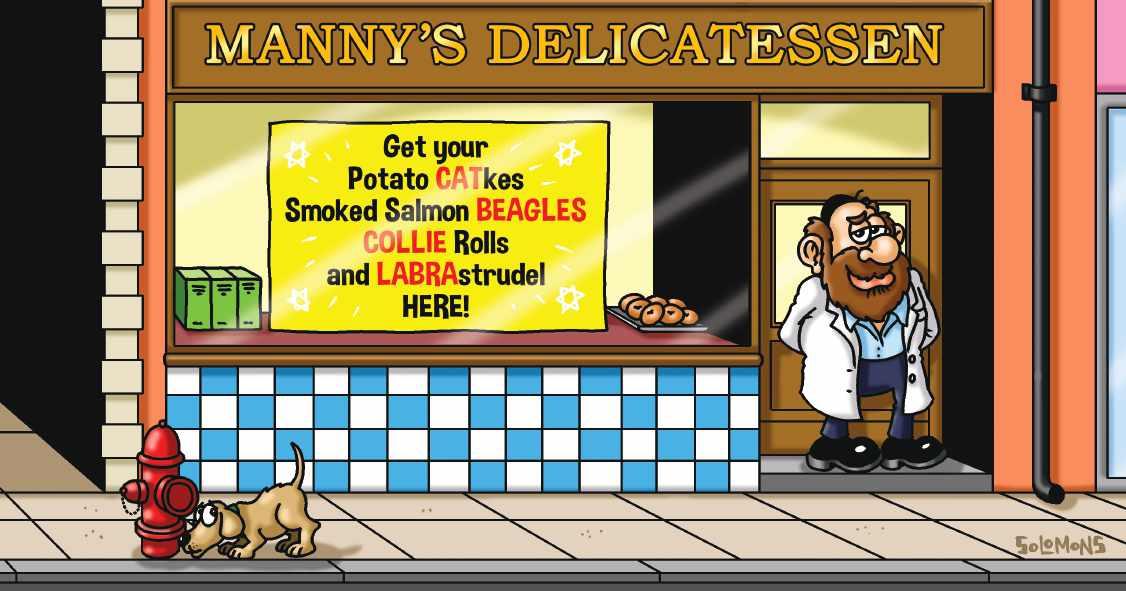
Following Donald Trump’s claims, Manny’s Deli in Springfield, Ohio, spots a gap in the market




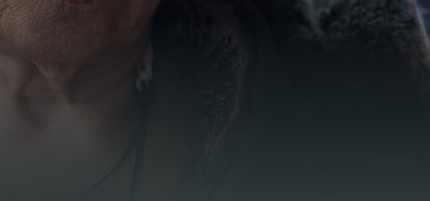
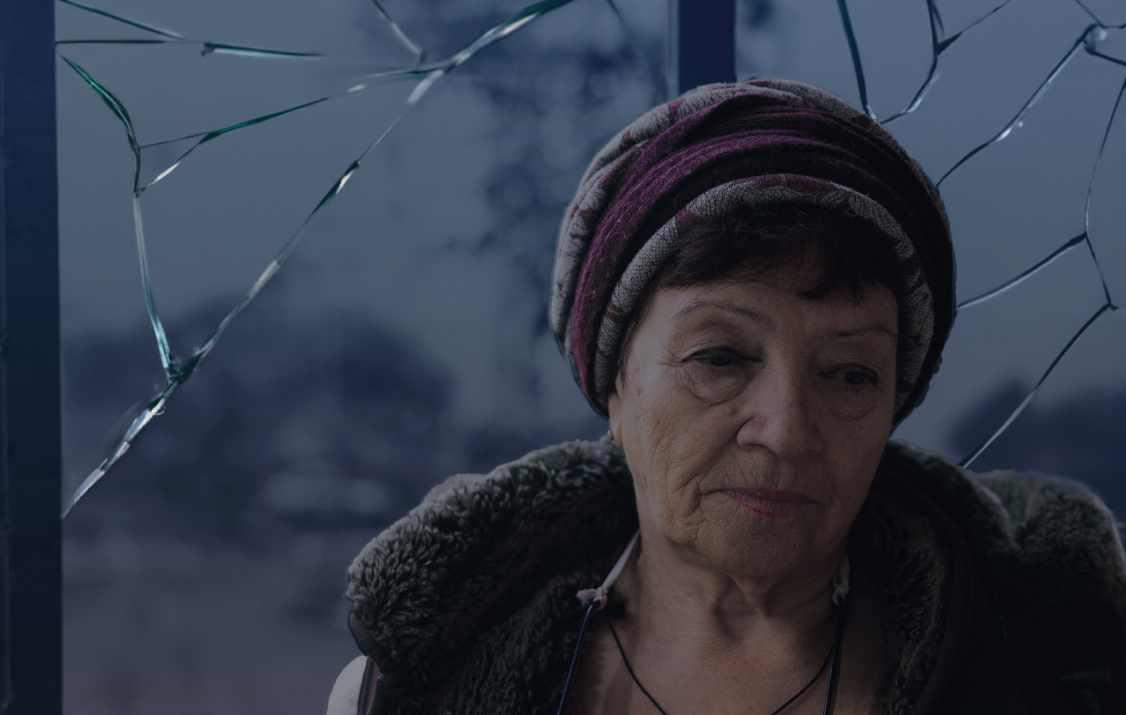

KAREN POLLOCK CHIEF EXECUTIVE, HOLOCAUST EDUCATIONAL TRUST
In 1945, Richard Dimbleby entered the newly-liberated Bergen-Belsen camp. He vividly described the horrors he witnessed.
“I passed through the barrier and found myself in the world of a nightmare... Dead bodies, some of them in decay, lay strewn about the road. And along the rutted tracks on each side of the road were brown wooden huts. There were faces at the windows. The bony emaciated faces of starving women too weak to come outside – propping themselves against the glass to see the daylight before they died… I’ve seen many terrible sights in the last five years but nothing, nothing approaching the dreadful interior of this hut at Belsen.”
While he was recording his historic report, a group of female prisoners approached him, asking to be recorded. What ended up being broadcast is one of the most painful, beautiful




and sorrowful recordings ever made. What those women, who had endured years of Nazi brutality, wanted the world to hear, was the sound of them singing Hatikvah The Hope. The song that embodied their dreams of freedom. The song that sustained them during the long years of Nazi oppression, that embodied their dreams of living to see the day of their liberation and reaching a place that they could forever call home. The song that went on to be the national anthem for the State of Israel.
Three years later, Lily Ebert stood on Rothschild Boulevard in Tel Aviv hearing the Declaration of Independence. Lily, her brother and two of her sisters had survived the camps, but among the victims of the gas chambers were her little brother, her sister and her mother.
Seventy-six years on, Lily still remembers that day. She describes how people flooded the streets to celebrate. She recalled: “Suddenly after all our trials, after everything our people had su ered for centuries, we … had returned home to a place that belonged to us. A place where we belonged … I couldn’t have felt happier that day, our country had been reborn.”
And yet earlier this year, Lily, who was so full of hope in 1948, explained how heartbroken she was by the huge rise in antisemitism. In Britain, in 2024, that hope that the survivors have always managed to maintain has been shaken. Hatikvah has now become the anthem of a nation disgracefully accused of being Nazis. On social media, antisemitism runs rampant. On the streets, Jewish people have been attacked. There have been those who outrageously claim that Hitler was right or disgustingly claim that everything Lily experienced, everything that happened to six million Jews, never happened. Others have even turned the Holocaust into a weapon, using it against the Jewish people. But despite all that has happened over the past 11 months, I know Lily and other survivors we work with have found optimism once again. It comes from the thousands of young people who, having stood at Auschwitz-Birkenau, where Lily and her mother were separated, have returned dedicated to protecting the legacy of the past. These students, who are mostly non-Jewish, have learnt where hatred can lead. They have returned determined to
share the stories of the past, but also to be an advocate in the present, challenging antisemitism and combatting hate with truth.
It comes from the teachers who are ensuring that not a single student will leave school without understanding the Holocaust and that they will know it happened because of antisemitism. They are guiding students through the complexities of the past and the sensitivities of today, creating a generation who are sensitised to the antisemitism they see around them.
And it comes from those brave few young people who have heard the stories of Holocaust survivors and have chosen to put their head above the parapet. As social media becomes ever more toxic, as antisemitism spreads ever more virulently on online spaces, there are people who are choosing to take a stand.
As we get closer to the first anniversary of 7 October, as we mourn the hostages murdered by Hamas and pray for the safe return of those still held hostage in Gaza, and as we find the strength to move forward in our grief, those women at Bergen-Belsen remind us that, whatever happens, we have to find the hope.



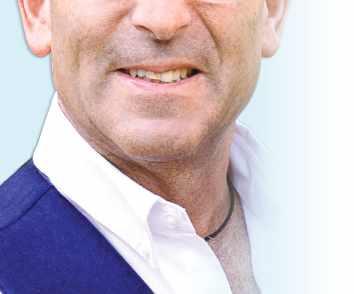






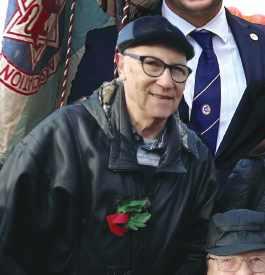
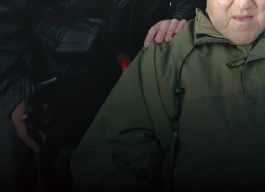



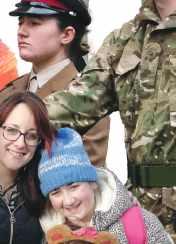
























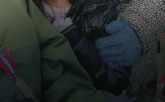
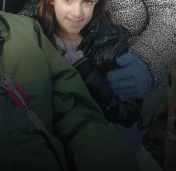


















































SUNDAY 17TH NOVEMBER | PARADE BEGINS 2PM | THE CENOTAPH, LONDON SW1
Register now and save the date to join AJEX at The Cenotaph this November where we will honour the thousands of Jewish servicemen and women who served for our freedom.
United as British Jews in pride and purpose, we march to Remember, to honour and to stand against antisemitism, shaping our future together. Veterans, individuals, families and community groups of all ages are welcome. We will be ‘Standing Tall’ in solidarity, honouring their legacy.

If you are a Parade regular or newcomer, be sure to register to participate. To secure your spot to march book your ticket by Friday 8th November at www.ajex.org.uk
To support the Parade as a spectator from the East Whitehall Pavement no booking required. Please allow enough time to arrive at the event as there will be a high level of security provided by CST and the Police.








































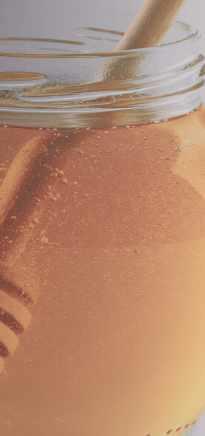















































































Emily Ben-Ze’ev from Emily’s Adventures in Wonderland ran a science workshop on “Forces” at Jewish Family Centre in Golders Green. Children aged between four and 11 took part in an afternoon of activities, including magnetic chess, marble runs, astronaut rockets, rocket balloons and magnetic gyro wheels.
Together with Jewish Care, Nightingale Hammerson hosted the South London and Southern Counties Forum. Its Community Support Service, funded by both charities, provides a lifeline for members with care needs in south London, Kent, Surrey, Sussex, Hampshire and Dorset. The event marked the launch of ‘Reach by Nightingale Hammerson’, a project to support people to live better for longer at home.
The third Shine for Shani Football Marathon took place at Watford Powerleague with hundreds of players aged eight to 80 turning up to score goals in a full day of football games. Shine for Shani was set up by Shani Berman’s family after she died in 2017 following complicated openheart surgery. To donate: justgiving. com/page/sfsfootballmarathon2024
Borehamwood and Elstree United Synagogue held a graduation ceremony for the first cohort of Beyond Batmitzvah participants. The course, which began in May, provided a unique experience for women who had not previously celebrated the milestone. The programme was devised by Rebbetzin Eva Chapper, who led sessions on subjects including the power of speech, women’s education, body and soul.
The first Kisharon Langdon Golf Days raised £65,000 at Hartsbourne Country Club. A total of 44 teams participated on the club’s 18-hole Willow course in a Stableford team competition. Prizes were awarded to the winning teams: Tony Khalastchi, Michael Khalastchi, Ben Buck and Haydn Fentum (day one) and Max Harris, Steve Marlow, Reece Parmenter and Julian Evans (day two). All proceeds will go towards Kisharon Langdon services, helping individuals with learning disabilities live fulfilling and independent lives.
Ilford Federation Synagogue held a pre-Rosh Hashanah programme with three speakers. Rabbi Stanley Coten spoke about his experiences as senior chaplain for hospitals, Norwood care homes and prisons; Rebbetzin Rochel Leigh from Cambridge talked about guided meditation and Rev Stewart Myers shared some life journeys as minister and teacher in Bradford, Israel, Australia and London.
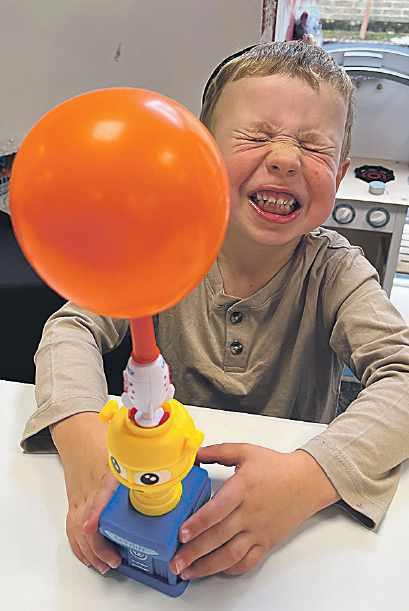
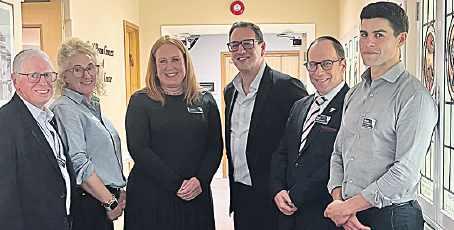
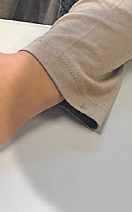





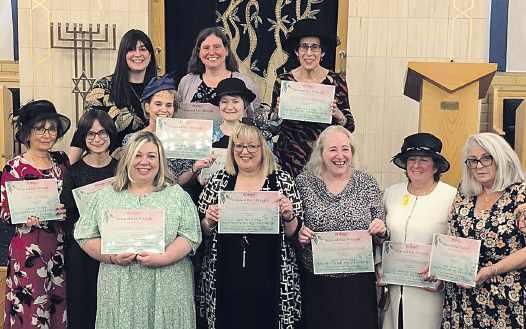
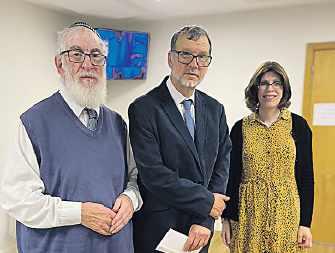










































With the help of a writer from Manchester’s My Voice oral history project, Harry Olmer’s prodigious story of survival has been told, says Jenni Frazer
On one wall of Harry Olmer’s north-west London home are dozens of framed photographs, all of them clearly family pictures, some old, some more recent.
The pictures represent more than the kind of mementoes to be found in most Jewish homes – as Harry himself states clearly on the cover of his remarkable memoir, My revenge on Hitler is my family
In other words, rebuilding his family – he and his late wife Margaret, herself an immigrant who came from Austria on the Kindertransport, had four children – was the driving force behind Harry’s life.
A barely believable 97 years old, compact of build and charmingly polite, Harry Olmer arrived in Britain as one of the group of “The Boys”, the young men and women who flew from Prague in August 1945, initially to stay in Windermere in the Lake District.
Many of them had been through several concentration and labour camps. Harry’s war, which began for him as a 12-year-old named Chaim Olmer, was slightly di erent.
His is a story of last-minute impulse escapes, of slave labour in Polish-based ammunition centres, of backbreaking work in the Plaszow camp near Krakow, of time in Buchenwald and Theresienstadt and of nearmiraculously finding two of his siblings, from their family of six brothers and sisters, had survived the war.
Throughout, Harry says: “I never thought I wouldn’t survive” and “I never lost my Jewish faith”. He might add a third thing – being born in Poland near the German border, the young Chaim spoke Polish, German and, of course, Yiddish. It is probable his ability to slide in and out of languages saved his life many times.
In his memoir, Harry tells us he was a good student at school, something which stood him in good stead when he arrived in Britain and was eventually able to resume his longsuspended education.
But first he had to go through six years of terror and fear. Just one chapter in his memoir is called A lucky escape, but that seems to have permeated his life during the Holocaust. Astonishingly, the Olmers were able to give young Chaim a barmitzvah. At the time, he and his siblings were working for the Germans. His father told them all “not to tell them our real dates of birth because, if you were under 14, you didn’t get any rations”. So, not for the last time, Chaim concealed his true age and claimed he was two years older than he was.
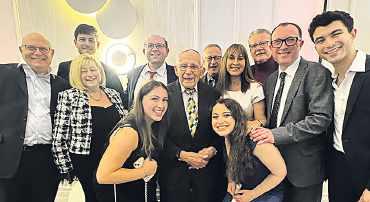
The downside, however, meant if you got rations, you had to work. Nevertheless, he records: “I had my barmitzvah during this time. The rabbi started the service very early in the morning so as not to jeopardise the situation with the Germans. I didn’t say the Haftorah. I just did the bracha (blessing) and we had a lunch afterwards at my grandmother’s place”. How brave of the family to try to make things “normal”, even for such a short time.



Harry tells terrible stories of selections and random shootings done in the most matterof-fact way. In 1942, he says, hundreds of Jews were rounded up and put on trucks for an unspecified location. A Jewish leader’s father was confronted by a German o cer about a man in his home who was an amputee. “That’s my father”, the Jewish leader said, and the o cer immediately killed the amputee.
“I saw the Poles digging graves behind the house”, Harry reports, “and when they saw the man had an amputated leg, they tried to break his other leg just to make the grave smaller”.
In 1943 there was a new horror, which if the taciturn Olmer describes as “the most terrible place you could possibly imagine”, must have been like another hell. This was a munitions factory in central Poland, spread over three camps. Camp A made steel shells, camp B made small arms and Camp C, where Chaim was sent, was where explosives were made.
The mostly Jewish workers in Camp C used picric acid, making land and sea mines. It turned everything around it yellow, and it became well known that people lasted only two months before dying of the toxic compound.
One night, Chaim ran o and joined a transport company which carried the empty shells from trains into the factories. That incident certainly saved his life.
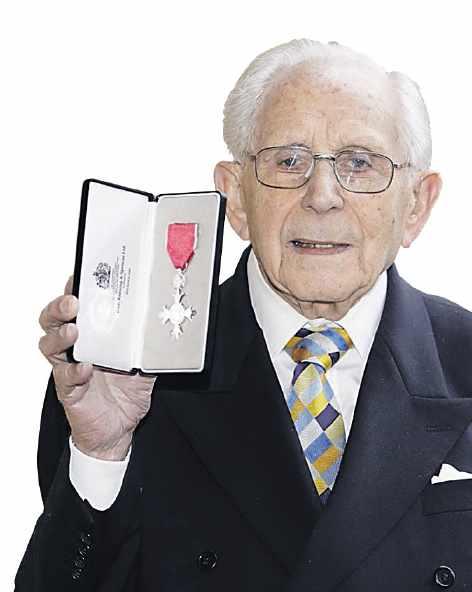
The next stop for the young Chaim was Buchenwald, where he arrived in August 1944. This was followed by a stint at an explosives factory and then a new destination – Theresienstadt in Czechoslovakia, eventually to be liberated by the Russians.
was Buchenwald, August 1944. This was
Just before liberation, Chaim was so ill that he says now “if the war had lasted another day, I wouldn’t have survived”. His body went into spasm and he couldn’t talk, but the war was over. Chaim Olmer was 17, nearly 18, but in a highly weakened state.
The big question was what to do next. He wanted to go to Palestine but was aware the British were turning people away. Then he had news from a friendly nurse in a makeshift hospital that one of his sisters had survived, which helped a little in his recovery.
The nurse told him about a British agreement to allow 1,000 young people into the UK. She told Chaim he should go, but his name was not on the list. “She [the nurse] told me that one of the boys who was on the list for England had found out his father was alive in Poland, so he had decided to go back there.”
This boy was Ephraim Mintzberg, and it was with papers bearing this name that Chaim Olmer arrived in Windermere, telling everyone in earshot his name was Chaim and not Ephraim. Today, he says, he never found out what became of his unwitting rescuer.
It wasn’t till 1953 that Chaim transmogrified into Harry while doing National Service for the British Army. The o cers could not get their tongues round the name Chaim. But
that was a long way o . After Windermere, Chaim was still not fully recovered so he and some other “Boys” were sent to recuperate in Cardross, in Dumbartonshire.
He learned English, made friends, and after taking Scottish school qualifications equivalent to today’s A levels, began to work first as a dental mechanic to follow his aim of ultimately becoming a dentist.
Following five years’ study at Glasgow University’s dental school, he achieved his orthodontics certificate of merit and went on to become a highly regarded and well-loved dentist in London and Hertfordshire, continuing to practise until he was 86.
Harry Olmer’s memoir was written under the auspices of the My Voice oral history project, run by the Manchester-based social services charity The Fed. Its volunteer, Gary Boorman, spent the last year with Harry, learning about his extraordinary life.
Harry returned to Poland for the first time since the war in 1990, taking members of his family and attempting to learn of the fate of his relatives who did not survive.
He has spent many years since talking to schools about his Holocaust experiences, and for this was awarded first the British Empire Medal and then the MBE for his services to Holocaust education.
Princess Anne gave Harry his MBE in 2023. “She asked me about the work I do, and I told her that I still go into schools… it’s more important now than ever before because of rising antisemitism and Holocaust deniers”.
The princess responded by touching Harry gently on the shoulder.
“She gets it,” Harry says.
The country needs your support more than ever. One reason to visit is to see things you’ve never seen, as Charlotte Henry discovered last week
For many readers, Israel feels like a home we care about and long to visit, particularly at times when it can feel out of reach. The magic of landing at Ben Gurion doesn’t fade, however many times you have done it. Indeed, I felt a sense of relief returning after such a dark, difficult year.
One of the joys of the country is that there is always something to explore. After a recent visit, Jewish News, in association with the Israeli Government Tourist Office, will, in the coming weeks, be looking at some of the new and not so obvious things to enjoy on your next visit.
The plane to Israel may land in Tel Aviv, but Jerusalem is often regarded as the entrance to Israel. It is the focus for three major world religions, home to staggering history and the base of many key Israeli institutions.
And now there is a new gateway to the city.
The Tower of David Museum originally opened back in 1989, but it has recently enjoyed a $50m (£38m) revamp. The final outcome is quite mind blowing. Huge modern touchscreens help tell the story of this significant spot over millennia.
In some exhibitions, you can look out of the window to see the city as it currently is. The combination of ancient and modern is hugely effective and perfectly sums up the contrasts that define both Jerusalem and Israel more broadly. The view of the Old City from the top of the tower is also quite breathtaking.
The Tower of David also features a lovely outdoor coffee shop, available for anyone to use. It’s a great place to relax with friends, even you don’t have time to take in all the exhibits.
Another beautiful spot in Jerusalem is the National Library. Technically it’s not new. A national library actually outdates both the State of Israel and the Zionist Congress.
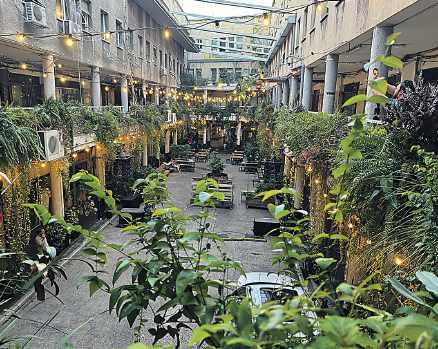
However, it is a brand new, thoroughly modern design and site.
Described as a “well of knowledge”, this stunning piece of architecture is situated by the Knesset and the Supreme Court. It acts as the third pillar of society – politics, law and culture – and serves as a national institution for both Israel and the Jewish people.
Visitors will have their own personal highlights, but seeing Naomi Shemer’s original score for Yerushalayim Shel Zahav really stands out, as does the poet Hannah Szene’s notebook.
In total, the library houses somewhere between 4.2 and 4.5 million books, split into five core collections – Judaica, Israel, Islam, the humanities and music. Robotic machinery delivers works to the readers that have requested it. Seeing the equipment in action is another highlight of the tour! It seems almost impossible that the right book can get to the right person, and yet that is what happens time after time.
As well as the books and archival

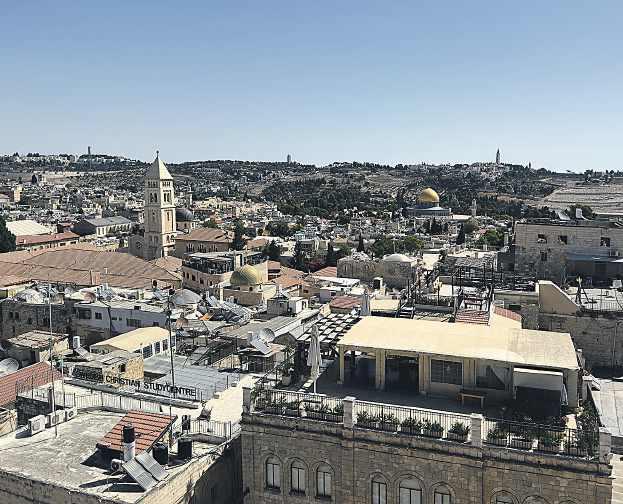
material, there is wonderful art on display throughout the National Library.
Of course, both these institutions have been affected by the war, with the staff showing incredible levels of resilience to keep them not just functioning, but welcoming. The library was meant to fling open its doors with a grand opening on 17 October 2023. This, obviously, did not happen. However, public demand meant that its spacious, bright reading rooms opened on 29 October. It has been consistently busy since then.
The library is also acting as a central repository for stories and documentation around the Hamas attacks of 7 October. It has had to put some of its most precious items into vaults, although there is no shortage of amazing material available to see.
For the Tower of David Museum, there were different factors at play. Staff had to check it was safe to open in the event of further attack. They found that the existing walls are thick enough that the exhibits can actually
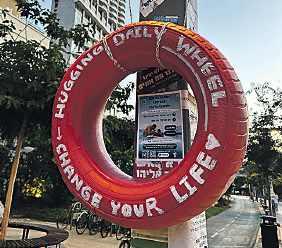
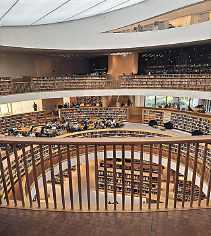
serve as safe rooms. Turns out the ancient warriors knew what they were doing! They are also operating an open-door policy for those who have had to be evacuated from their homes and reservists.
In their own way, both the National Library of Israel and the Tower of David Museum provide calm, analytical and enjoyable spaces in difficult times.
If you enjoy museums, there is plenty on offer in Tel Aviv too.
The Anu Museum tells the story of the Jewish people in a variety of ways, ably reflecting the different histories of our global community.
For instance, it details the stories of Jews from Arab countries, and the way Jews were twice expelled from the UK, before being invited back by Oliver Cromwell.
Particularly enjoyable is the exhibit on Jewish comedy. It encompasses everything from famous Israeli comedy shows to current stand-up star Modi – a good laugh indeed.
Like the National Library in Jerusalem, it takes seriously its responsibilities to document the 7 October atrocities and has a very powerful display on the subject.
While the Anu Museum and the other such exhibitions in Tel Aviv really are fantastic daytime activities, for many, Tel Aviv is all about the nightlife – let’s be honest! A great spot is Teder, which acts as
something of a cultural hub in the city. It has long been a favourite Tel Aviv haunt of mine, with the atmosphere ramping up as the night goes on.
Behind sometimes closed, hidden doors, there are shops, beer and pizza and dancing. The Israeli Philharmonic Orchestra has even performed there.
So important has Teder become to Tel Aviv that attempts by real estate owners to turn it into skyscrapers were rebuffed. The nearby Romano restaurant from top chef Eyal Shani is also not to be missed (check out the fish shawarma…)
The area around Teder has also been revamped with a new promenade. It now resembles New York City’s High Line and makes for a lovely evening walk as the day’s heat dies down. The LGBT community, Jewish or not, continue to be welcomed into the city too.
Indeed, both Jerusalem and Tel Aviv feel like they are getting their buzz back, with the local communities and domestic tourists determined once again to enjoy what these cities have to offer. Dinner one night in Jerusalem was disturbed by a crowd dancing and singing along to Israeli hits!
Machane Yehuda in Jerusalem is always a good place to wander through as well, with the market of the day changing into a spot for food and drink at night. It and the surrounding bars were busy, with fans also enjoying beer in a local well-known football pub even though there was no game on.
Israel is, of course more than these two great cities.
However, they undoubtedly serve as brilliant starting points for any visit. It felt great to be back in Israel, with tourists welcomed with open arms. And even if you think you know Jerusalem and Tel Aviv, there is always plenty more to discover, learn and enjoy.




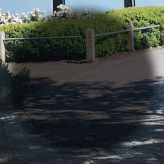



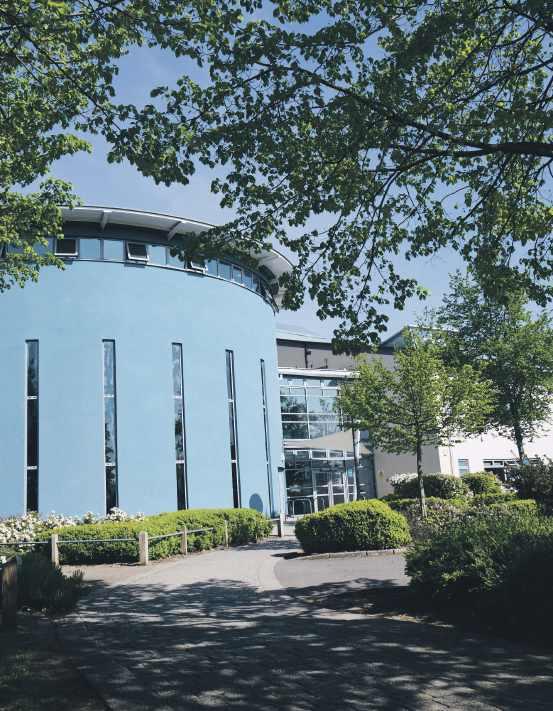



Calling all Prospective Nursery & Reception families
Tuesday 24th September
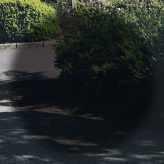

Wednesday 30th October, Thursday 14th November we will be holding open mornings at 10am
You will have personal tours of our wonderful school, get to meet our Head Teacher and see the school in action. Some spaces are available across the school.
To attend, please email admin@hasmonean-pri.barnet.sch.uk or phone the Office on 020 82027704











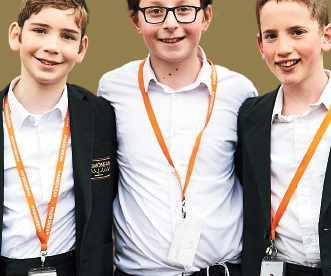








Wedding and bar/batmitzvah show
Sunday 3 November 2024



DoubleTree by Hilton London Elstree WD6 5PU Show sponsors 11am - 4pm


The perfect venue for your event
Stunning outside space
External caterers welcomed





Would a wine by any other name taste so good? By Tal Sunderland-Cohen

by
Ah, the appellation d’origine contrôlée (AOC)! This French certification ensures that our favourite wines stay true to their roots. Originating in the early 20th century, the AOC system was an e ort to preserve the integrity and authenticity of regional products – both internally and externally. While producers must adhere to strict rules about how wines are made, outsiders are also prevented from capitalising on the name of a famous area or counterfeiting well-known brands. Its pioneer? The illustrious Châteauneufdu-Pape, which earned the first o cial AOC wine title in 1936.
Almost every wine-producing nation has carved out o cial regions for its most well-known high-quality products. Each has unique characteristics. Iconic names such as Chablis, Champagne, Chianti and Porto do more than designate their birthplace: they represent the distinctive wine style of their home terroir. Stating the region on a bottle is like a secret handshake, letting the consumer in on the wine’s character, grape varieties and perhaps even a cheeky hint at its price.
Israel has been crafting high-quality wines for nearly four decades. Yet the notion of clearly defined, legally-recognised wine regions is still ripening on the vine. Even the legal definition of a ‘winery’ and a properly enforced licensing system for wine-making have yet to be finalised. Attempts to create an AOC-type system have been thwarted by political wrangling and commercial interests. But - plot twist! The Judean Wineries Club, made up of around 40 winery owners, has teamed up with the regional council and succeeded where others have floundered.
Two years ago, the Judean Hills Region was o cially recognised by the Israeli Agricultural Ministry. This means that all the grapes in a wine sold as coming from the Judean Hills must have been grown in that area. However, unlike France and other countries, there are no restrictions on how a wine is made.
The diversity of the Israeli wine scene is legendary. Despite the country’s small size, it is home to an incredible range of terroirs, grape varieties and wine-making styles. Local wine makers also love to experiment with both indigenous and imported grapes. Some industry professionals believe that if Israel created o cial designations for its wine regions like in an AOC system, it would help consumers make sense of this eclectic, dynamic landscape, and it would also benefit the wineries by giving them a clear sense of identity: a distinct regional brand.
Here is a brief tour of the wonderful wine regions of Israel:
Galilee: The Upper Galilee is the darling of Israeli viticulture, with altitudes from 400 to 1,200 metres providing a cooler climate ideal for grapes. The volcanic basalt soils, mixed with terra rossa and limestone, o er excellent drainage and rich minerals. The Lower
Galilee, though warmer, benefits from fertile soils and the Sea of Galilee’s moderating influence, making it equally wine-friendly.
Golan Heights: Imagine a wild landscape with dormant volcanoes, cascading waterfalls and a mosaic of natural and military sites. Ranging from 400 to 1,200 metres in altitude, this region is divided into High North and Lower South. Volcanic soil and elevation create a cooler climate, perfect for developing complex grape flavours. With around 10cm of annual rainfall, these vineyards have ample water.
Coastal Plain: This is the birthplace of modern Israeli viticulture, where Baron Rothschild planted vineyards in the twilight of the Ottoman era. The Mediterranean climate, with hot, dry summers and mild, wet winters, is a wine-maker’s dream. The proximity to the Mediterranean Sea moderates temperatures and extends the

growing season with plenty of sunlight. The terroir ranges from sandy near the coast to rich and loamy further inland, accommodating a variety of grape varieties.
Central Mountains: This mountainous avenue, stretching from northern Israel to the West Bank, features rocky limestone hills and ancient terraces. Populated by a mix of Christians, Palestinian Muslims and Jewish settlers, it is a region rich in history. The vineyards here, at 500 to 900 metres high, benefit from warm summers, cool rainy winters and significant day/night temperature shifts, enhancing the complexity of the grapes.
Judean Hills: Located west of Jerusalem, these rugged hills range from 500 to 1,000 metres in altitude. Here, we find well-drained limestone and terra rossa soils. The Mediterranean climate provides hot, dry summers tempered with cool, wet winters. This supports balanced grape-ripening, producing wines with remarkable depth.
Negev: Viticulture in the desert is a marvel. Here, there are 300 sun-drenched days a year with temperatures that could bake bread, blinding radiation bouncing off bright sandy soils and a stingy few millimetres of rain. At night, the temperature plummets. The soil is rich in salt but poor in minerals and nutrients. Welcome to one of the world’s most challenging winegrowing regions! However, all is not what it seems: the dramatic temperature swings work wonders for ripening grapes, and the dry air keeps rot and pests at bay. These harsh conditions shape the vines into something very tough and special, giving Negev wines a distinctive character. It remains to be seen whether the o cial regional appellation will make the di erence hoped for by the Judean Wineries Club and whether other appellations will be created. But regardless of whether Israel introduces a full AOC-style system, its fascinating wine regions continue their journeys, each brimming with unique character and ready to pour its story into your glass.
L’chaim!





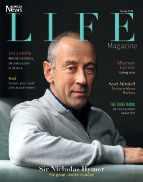








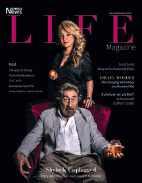






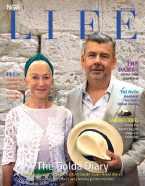


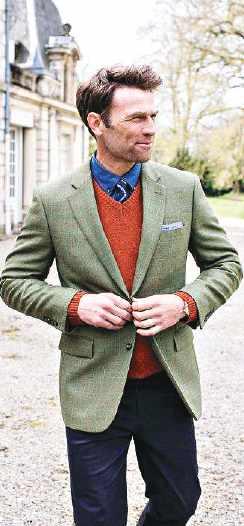
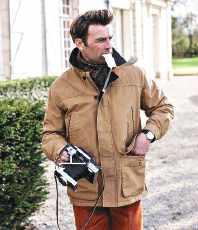













In our thought-provoking series, rabbis, rebbetzins and educators relate the week’s parsha to the way we live today
BY RABBI JONNY ROODYN EDUCATIONAL DIRECTOR AT JEWISH FUTURES
A lack of joy can disconnect us from God
Parshat Ki Tavo contains dramatic blessings and curses, which delineate the rewards for following Hashem’s commandments and the consequences for straying from his path. Amid these powerful sections, a seemingly subtle but critical verse reveals a key insight into the centrality of happiness in Jewish life.
The verse states: “Because you did not serve Hashem your God with joy and a good heart, out of the abundance of everything” (Devarim
28:47). This brief mention of joy is foundational in understanding the broader significance of happiness in Jewish thought and spiritual practice. Joy is not merely an outcome of material wealth or success, but rather a reflection of spiritual fulfilment.
The Torah’s admonition that people did not serve Hashem with joy “out of the abundance of everything” means even in times of prosperity, one can lack joy if he or she fails to connect deeply with his or her purpose; in other words, ‘A uenza’.
Judaism teaches that true happiness comes from living a life of meaning, purpose, and responsibility.
Mitzvot serve as a framework for building such a life, guiding individuals to infuse their daily actions with intention and holiness. The joy that comes from fulfilling mitzvot is
HOURS PERMANENT, 8 HOURS PER WEEK SALARY UP TO £15,000 PER ANNUM
not just personal happiness; it is an acknowledgment that one is part of a larger Divine plan.
This sense of connection to something greater than oneself is a critical component of Jewish happiness. In fact, Rabbi Shimshon Refael Hirsch connects the word simcha (joy) with the similar sounding word, tzmicha (growth), explaining that true joy comes from personal growth.
The Jewish calendar is filled with moments designed to cultivate joy, from Shabbat, which is referred to by the Prophet Isaiah as “a day of delight,” to the upcoming Yamim Tovim, where we have a specific mitzvah to be happy.
These occasions are not only moments to celebrate, but also opportunities to practise the art of being joyful, to connect with God, and to

express gratitude for the abundance in one’s life.
In Jewish thought, happiness is therefore not just an emotion; it is a spiritual tool.
The Baal Shem Tov taught that the Almighty has sent us into this world on an appointed mission. It is his will that we accomplish that mission in a state of joy. Sadness implies an unwillingness to carry out his will.
This idea is emphasised by the great Baalei Mussar (ethicists) who
say that a truly happy person does not allow his or her happiness to be dependent on any external factor over which he or she may not have control.
So we can see the lack of joy is a spiritual deficiency that can lead to a sense of disconnection and distance from God.
Conversely, joy has the power to bring a person closer to the creator, to elevate the mundane into the holy, and to transform a life of routine into one of deep spiritual fulfilment.
Enfield & Winchmore Hill Synagogue, a modern Orthodox community in Enfield, seeks a part-time Rabbi.
Responsibilities include halachic, spiritual, educational and pastoral leadership, with event planning capabilities. The ideal candidate will have a modern leadership style, sound judgement, and a love of people. They should be studying for or have semicha and ideally possess a high level of secular education. The role includes a self-contained two-bedroom flat for Shabbat and the Chagim accommodation.
For an informal chat, contact Chair Michael Rubinstein on: chair@enfieldsynagogue.org.uk
For more information and to apply please scan the QR code or visit:www.theus.org.uk/jobs
MONDAY



BY RABBI D.Y. (DAVID-YEHUDA) STERN RADLETT REFORM SYNAGOGUE
Even in the darkest moments we need to find pockets of light in order to stay the course. This is no easy feat as our anxieties, fueled by a mixture of actual and perceived stresses, often cloud our ability to stand back and objectively see reality; a muddled mess of cheer and gloom.
In Yiddish su ering is often referred to as ‘Tsuris’ which is taken from the Hebrew root meaning ‘narrow’ or ‘tight’. This is appropriate as when we su er our natural response is to constrict, focusing only on the bad, and closing ourselves o to all the joy that continues to exist in the world.
Jewish tradition asks us to observe and hold both suffering and pleasure alongside one another. Indeed many of our chagim (‘festivals’) see us simultaneously mark and relive moments of horrific cruelty and delightful bliss.
To take one example; the Passover matzah recalls our time as slaves in Egypt as well as our subsequent liberation. That is why we refer to this matzah as both ‘the bread of affliction’ and ‘the bread of freedom’. In this sense Judaism does not ask us to be overly pessimistic or cynical nor overly optimistic or naive.
Our suffering must never let us lose sight of all the good humankind and the natural world has to offer us.
As we approach 5785 there are indeed reasons to be cheerful. In environmental news the past year has seen deforestation in the Amazon Forest halved and European wind power production (i.e. renewable energy) is finally outpacing gas plants (i.e. fossil fuels).
The human capacity for generosity also
A stimulating series where our progressive rabbis consider how Biblical figures might act when faced with 21st-century issues
made headlines with the Charities Aid Foundation (CAF) World Giving Index 2024 reporting that people are constantly and increasingly giving their time and money to help strangers. In fact they reported that 4.3 billion people helped someone they did not know in 2023. That is three quarters of the world’s adult population helping others!
Yet it is rarely the newsworthy events that make us smile in our day-to-day lives as more often we find joy in the little things. This includes lifecycle moments like births, bar and batmitzvahs and marriage, but more often seeing family, connecting with friends or coming together with community.
As this week’s Torah portion, Parashat Ki Tavo, reminds us: “And you shall enjoy [...] everything that the Eternal your God has bestowed upon you and your household.”
Let us enter the new year with our eyes open to all the wonder and joy that the world has to o er.
Wishing you and your family shana tova umetukah – a good and sweet year.









Our trusty team of advisers answers your questions about everything from law and finance to dating and dentistry.
This week: Teaching children about disabilities, buying shares in an insurance brokerage and support to manage cashflow

LISA WIMBORNE CHARITY EXECUTIVE
JEWISH BLIND & DISABLED
Dear Lisa
I’m a teacher at a Jewish school and find it challenging to teach children about disabilities.
There are lots of resources, but I would like my students to have a meaningful understanding of what life is like for people who are disabled. Do you have any suggestions please?
Nicola
Dear Nicola
At Jewish Blind & Disabled (JBD) we believe we have a responsibility to help inform about disabilities and that young people have an important role in creating an inclu-

Dear Jacob
I’m considering buying 30 percent of the shares of an FCA-regulated insurance brokerage and have been told the FCA will define me as a “controller”. What does this mean?
Adam
Dear Adam
First and foremost, a crucial
step is that both you and the regulated firm have a duty to apply to, and receive approval from, the FCA prior to any purchase or change in ownership taking place. Application forms will need to be completed and submitted by each party and these applications must list all proposed controllers of the firm undergoing the change in control.
You’ll also need to:
• Provide personal details, including a CV, details of your commercial and business activities and detailed financial status;
• Submit detailed ownership charts detailing any close links and regulated entities;
• Explain how you understand the risks in the business model for your proposed acquisition and outline how these will be
sive and accessible society.
Our free schools programme has educated thousands of primary and secondary school students.
What makes our sessions impactful is that they are part-delivered by JBD tenants. The tenants, who have various disabilities, including vision impairment, amputees and Parkinson’s, each bring their own personality to the lessons, where they talk openly and honestly about their lives.
All the tenants are incredibly inspirational and students get to appreciate what life is really like when you have a disability. Meeting a tenant opens the eyes of young people and our hope is that we help to create an empathy for people with disabilities that lasts a lifetime.
If your school would like us to visit, please contact talia@jbd.org
mitigated, together with any plans you have for change or development;
• Identify any existing or potential conflicts of interest and develop strategies for their management;
• Provide details and copies of any documents of funding and contracts relating to the purchase.
The FCA has up to 60 working days to assess the change in control application and make a decision. This can be extended if additional information is required. The FCA may also grant conditional approval, requiring the new controllers to meet specific conditions to maintain the authorisation.
You should consider whether it is appropriate to engage with legal and regula-

ADAM SHELLEY ACCOUNTANT
SOBELL RHODES LLP
Dear Adam
I’ve set up a new business and need some support in managing cashflow effectively. Are you able to provide guidance?
Sarah
Dear Sarah Managing cashflow e ectively is critical for the survival and growth of your business. It’s about planning, monitoring and controlling the money coming in and going


out, which ensures you have enough cash to cover your expenses and avoid insolvency. Staying updated with the latest strategies is vital.
The first step is to understand how it works within your business – knowing when and how your income and expenses occur.
Create a cashflow forecast that includes all expected inflows (from sales, accounts receivable and so on) and outflows (such as operating expenses, inventory purchases and loan payments). This forecast should be updated regularly to reflect actual figures and revised projections.
Accelerating the inflow of cash is crucial. You can do this by invoicing promptly, o ering payment incentives, implementing payment terms
and streamlining payment processes. Technological advancements help small businesses to manage cashflow more e ciently.
Maintaining a cash reserve is a strategic financial safety net, designed to shield against unforeseen cashflow dips. Determining its size involves analysing historical financial patterns and anticipating future needs.
Assessing your financial status, can give you a plan aimed at improving your cashflow. Additionally, insights can be provided into tax e ciencies to ensure you’re not overpaying, thereby improving your overall situation and enabling more informed decision-making for sustained growth and to benefit personally.
TREVOR GEE
Qualifications:
• Managing director, consultant specialists in affordable family health insurance
• Advising on maximising cover, lower premiums, pre-existing conditions
• Excellent knowledge of health insurers, cover levels and hospital lists
• LLB solicitors finals
• Member of Chartered Insurance Institute
PATIENT HEALTH
020 3146 3444/5/6
www.patienthealth.co.uk trevor.gee@patienthealth.co.uk

DONNA OBSTFELD
Qualifications:
• FCIPD Chartered HR Professional
• 25 years in HR and business management.
• Mediator, business coach, trainer, author and speaker
• Supporting businesses and charities with the hiring, managing, inspiring and firing of their staff
DOHR LTD
020 8088 8958
www.dohr.co.uk
donna@dohr.co.uk

ADAM SHELLEY
Qualifications:
• FCCA chartered certified accountant
• Accounting, taxation and business advisory services
• Entrepreneurial business specialist including start-up businesses
• Specialises in social media influencers and sport sector including tax planning and financial management
• Maurice Wohl Charitable Foundation Volunteer of the Year JVN award
SOBELL RHODES LLP 020 8429 8800 www.sobellrhodes.co.uk a.shelley@sobellrhodes.co.uk

LISA WIMBORNE
Qualifications:
Able to draw on the charity’s 50 years of experience in enabling people with physical disabilities or impaired vision to live independently, including:
• The provision of specialist accommodation with 24/7 on-site support
• Knowledge of the innovations that empower people and the benefits available
• Understanding of the impact of a disability diagnosis
JEWISH BLIND & DISABLED 020 8371 6611
www.jbd.org
Lisa@jbd.org

ILAN RUBINSTEIN
Qualifications:
• UK born, licenced Israel estate agent in Israel since 2001
• Ilan assists in buying, financing & re-sale of new & existing property in Israel.
• Helps level the playing field opposite vendors, developers & even the bank
• Attentive to your needs, saving you time, hassle & money

I.L.A.N. ESTATES & INVESTMENTS “Bringing Jews Home” UK: 0203-807-0878 ISRAEL: +972-504-910-604 www.ilanrealestate.com nadlan@hotmail.com

JONATHAN WILLIAMS
Qualifications:
• Jewellery manufacturer since 1980s
• Expert in the manufacture and supply of diamond jewellery, wedding rings and general jewellery
• Specialist in supply of diamonds to the public at trade prices
JEWELLERY CAVE LTD 020 8446 8538 www.jewellerycave.co.uk jonathan@jewellerycave.co.uk

CAROLYN ADDLEMAN
Qualifications:
• Lawyer with over 20 years’ experience in will drafting and trust and estate administration. Last 14 years at KKL Executor and Trustee Company
• In close contact with clients to ensure all legal and pastoral needs are cared for
• Member of the Society of Trust and Estate Practitioners
KKL EXECUTOR AND TRUSTEE COMPANY 020 8732 6101 www.kkl.org.uk enquiries@kkl.org.uk


STEPHEN MORRIS
Qualifications:
• Managing director of Stephen Morris Shipping Ltd
• 45 years’ experience in shipping household and personal effects
• Chosen mover for four royal families and three UK prime ministers
• Offering proven quality specialist advice for moving anyone across the world or round the corner
STEPHEN MORRIS SHIPPING LTD 020 8832 2222 www.shipsms.co.uk stephen@shipsms.co.uk
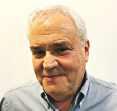
JACOB BERNSTEIN
Qualifications:
• A member of the APCC, specialising in financial services compliance for:
• Mortgage, protection and general insurance intermediaries;
• Lenders, credit brokers, debt counsellors and debt managers;
• Alternative Investment Fund managers;
• E-Money, payment services, PISP, AISP and grant-making charities.
RICHDALE CONSULTANTS LTD 020 7781 8019
www.richdale.co.uk jacob@richdale.co.uk

DR BEN LEVY
Qualifications:
• Doctor of psychology with 15 years’ experience in education and corporate sectors
• Uses robust, evidence-based methods to help you achieve your goals, whatever they may be
• Works with clients individually to maximise success
MAKE IT HAPPEN 07779 619 597 www.makeit-happen.co.uk ben@makeit-happen.co.uk

SUE CIPIN OBE
Qualifications:
• 24 years+ hands-on experience, leading JDA in significant growth and development.
• Understanding of the impact of deafness on people, including children, at all stages
• Extensive services for people affected by hearing loss/tinnitus
• Technology room with expert advice on and facilities to try out the latest equipment.
• Hearing aid advice, support and maintenance
JEWISH DEAF ASSOCIATION 020 8446 0502 www.jdeaf.org.uk mail@jdeaf.org.uk

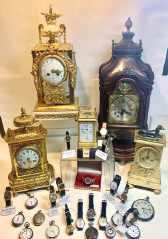


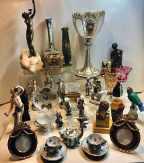




Come and visit our Homes to feel what it’s like to be part of the family. Our doors have been open for 55 years and we provide the highest quality of care. We hope to see you soon!

We purchase a wide range of Antiques, including Furniture through the ages, from Georgian, Regency and Victorian, to the more rare 20th century modern pieces. We also specialise in diamond jewellery, gold, silver, and paintings of any period, with an emphasis primarily on quality.
If you would like advice or to sell direct, do get in touch. Selling direct eliminates the high commissions involved with auction houses. In fact, we encourage sellers to obtain an auction estimate before contacting us, to be certain of receiving the best possible price.
Payment is immediate, by cash or Bank Transfer and we collect free of charge. We are here to help.
Please call Sue for a free valuation on: Freephone 0800 840 2035. Mob: 07956 268 290. email: antiquesbuyers8@gmail.com. Visit our website for more details: www.antiquesbuyers.co.uk















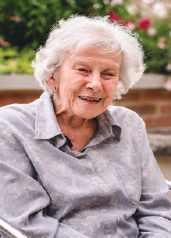








Antique – Reproduction – Retro Furniture (any condition)
Epstein, Archie Shine, Hille, G Plan, etc.
Dining Suites, Lounges Suites, Bookcases, Desks, Cabinets, Mirrors, Lights, etc. House clearances
Single items to complete homes
MARYLEBONE ANTIQUES - 8 CHURCH STREET NW8 8ED 07866 614 744 (ANYTIME) 0207 723 7415 (SHOP)

YOU CONTACT US BEFORE SELLING

Friendly Family Company established for 30 years
We clear houses, flats, sheds, garages etc. No job too big or too small! Rubbish cleared as part of


Confidential Bereavement Counselling for adults and children individually. Support Groups available. We offer in person, online and telephone counselling. Contact Jewish Bereavement Counselling Service in confidence. 0208 951 3881 enquiries@jbcs.org.uk | www.jbcs.org.uk CHARITY & WELFARE
Sheltered Accommodation
We
Ealing,
and

lawmentor@btinternet.com / 07590 057097

For more information contact Tom lawmentor@btinternet.com / 07590 057097










11 Female rabbit (3)
12 Morally proper (7)
10 Fairy-tale monsters (5)
Fill the grid with the numbers 1 to 9 so that each row, column and 3x3 block contains the numbers 1 to 9.
Fill the grid with the numbers 1 to 9 so that each row column and 3x3 block contains the numbers 1 to 9.
11 Brand-name breakfast cereal (5)
13 Blue Shoes, Presley song (5)
14 Culinary pulveriser (6)
16 Plus (2,4)
19 Farmland units (5)
21 Make more secure (7)
23 Try to win the affection of (3)
24 Sudden thrust (5)
25 Take away (7)
26 Tending flocks (11)
2 Dog’s restraining chain (5)
3 Appendix to a will (7)
4 Wax light with a wick (6)
12 Tempt, lure (6)
14 Yet, all the same (4,2)
15 Liquid secreted in the mouth (6)
18 Warm hooded jacket (6)
20 Make by sewing together quickly (3,2)
22 Person related by marriage (2-3) 23 Idlers, layabouts (7) 25 Defames (8)
26 World’s largest landmass (4)
1 Steak and kidney ___, meat in pastry (3)
2 Miscellaneous articles (13)
4 Small lump of gold (6) 5 Lacking height (5)
5 ___ basket, wickerwork carrycot (5)
6 Bishop’s area (7)
7 Signal to take action (4-2,4)
6 Unsure of future aims (13)
7 Fine-powdered earth or other matter (4)
8 Fails academically, in the USA (6)
10 Of clothes, reaching the middle of the leg (4-6)
15 Squash (7)
17 With vision (7)
1 Baby dogs (4)
3 Unfair or partial (3-5)
9 Sound muffler (7)
with brass bands can all be found in the forwards or backwards, in a horizontal, direction, but always in a straight, unbroken line.
11 Affirm (4)
13 Rubberneck (4)
16 In a state of repose (2,4)
17 Meat pin (6)
18 Heavy uninteresting food (6)
20 Lottery (5)
19 Propelled a boat (5)
21 Makes fun of (4)
22 Practise for a feat of endurance (5)
24 Leamington ___, town (3)
Each cell in an outlined block must contain a digit: a two-cell block contains the digits 1 and 2, a three-cell block contains the digits 1, 2 and 3; and so on. The same digit must not appear in neighbouring cells, not even diagonally.
Each cell in an outlined block must contain a digit: a two-cell block contains the digits 1 and 2 a three-cell block contains the digits 1 2 and 3; and so on. The same digit must not appear in neighbouring cells not even diagonally.
The listed words that include SUN can all be found in the grid. Words may run either forwards or backwards in a horizontal, vertical or diagonal direction but always in a straight unbroken line.
In this finished crossword, every letter of the alphabet appears as a code number. All you have to do is crack the code and fill in the grid. Replacing the decoded numbers with their letters in the grid will help you to guess the identity of other letters.
In this finished crossword every letter of the alphabet appears as a code number. All you have to do is crack the code and fill in the grid. Replacing the decoded numbers with their letters in the grid will help you to guess the identity of other letters.
for puzzle solutions.




























